Node.js is an asynchronous JavaScript runtime that allows for efficient handling of I/O operations. The presentation discusses developing with Node.js by using modules from NPM, debugging with node-inspector, common pitfalls like blocking loops, and best practices like avoiding large heaps and offloading intensive tasks. Key Node.js modules demonstrated include Express for web frameworks and Socket.io for real-time applications.

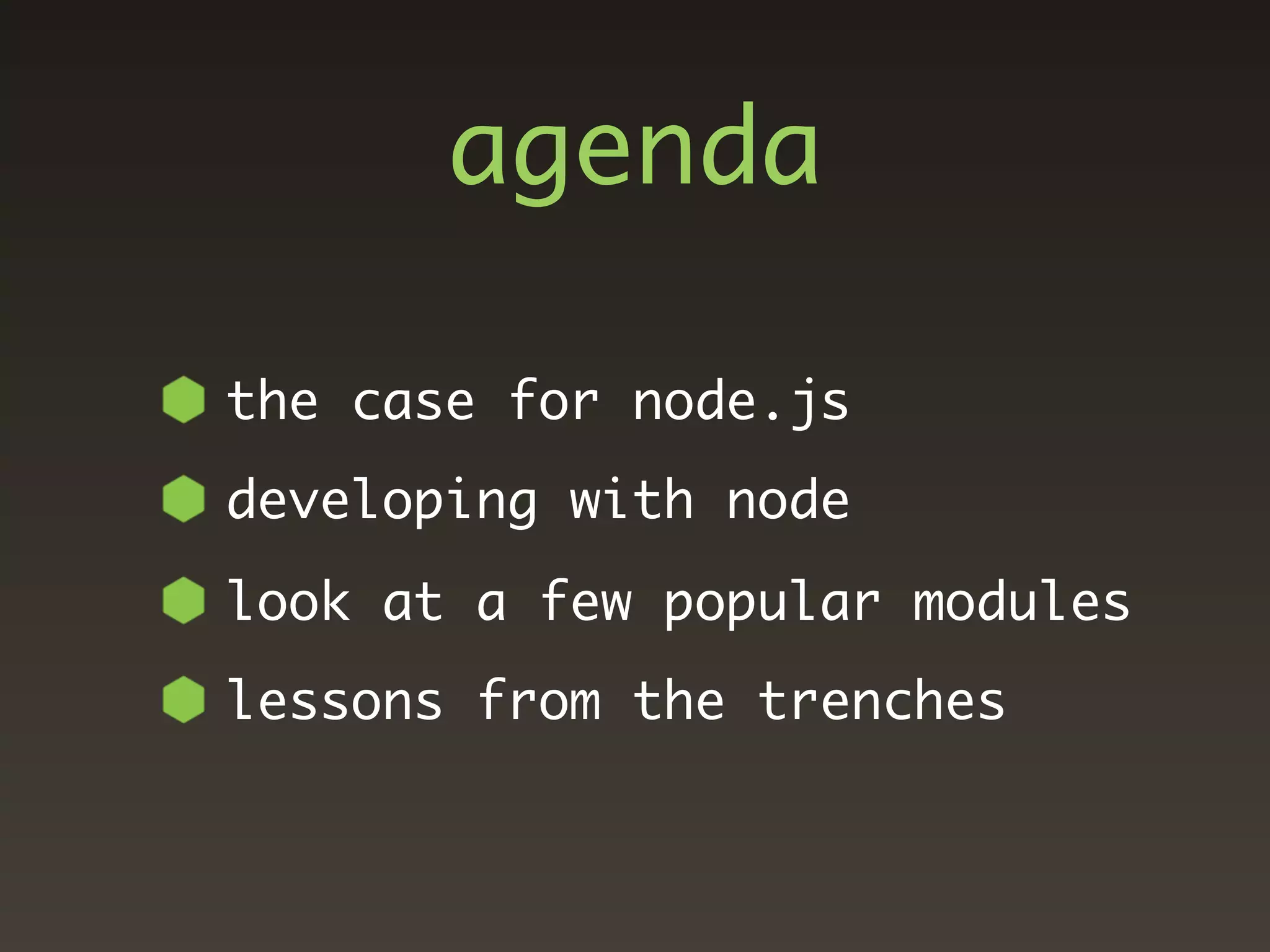

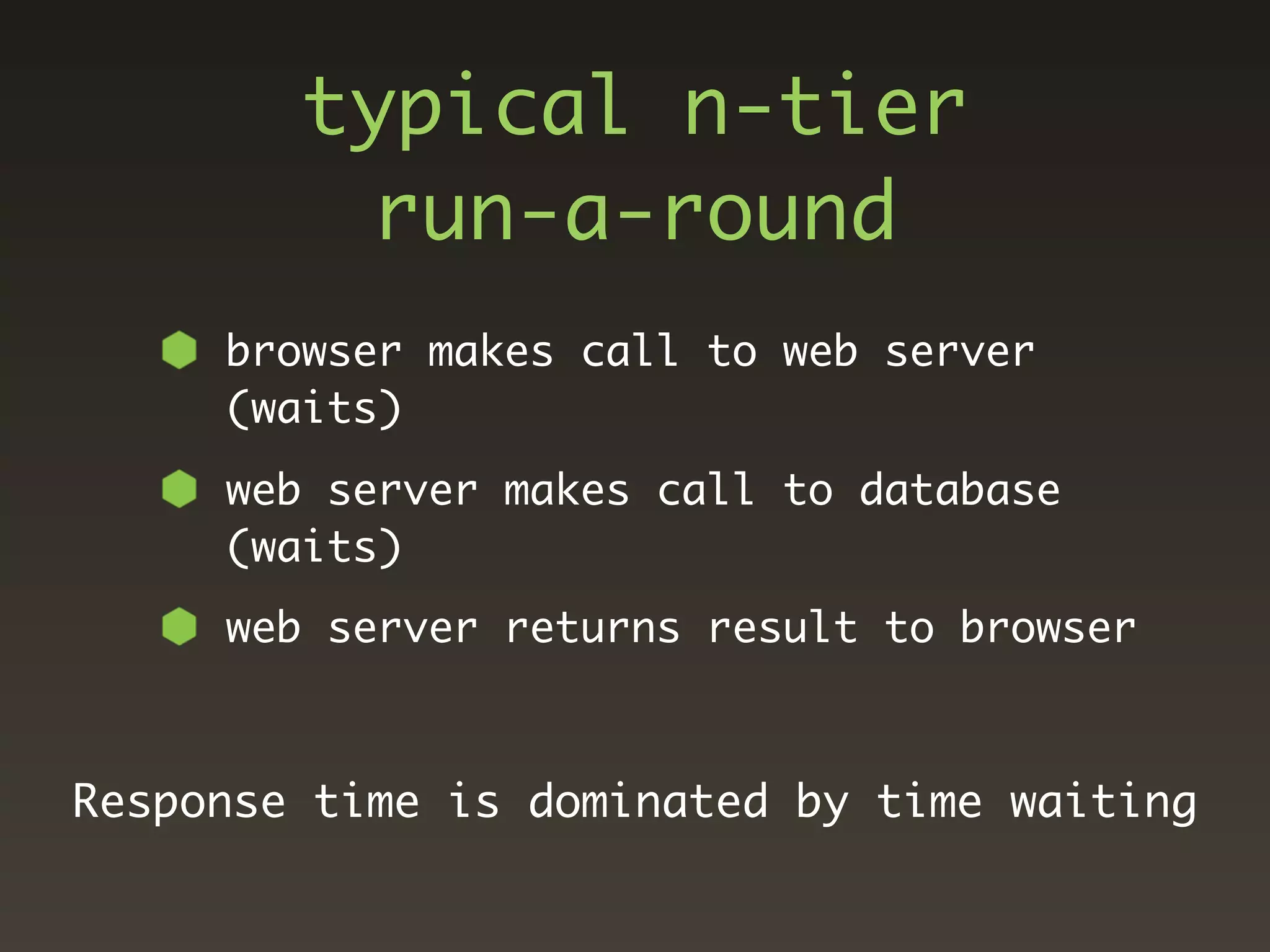
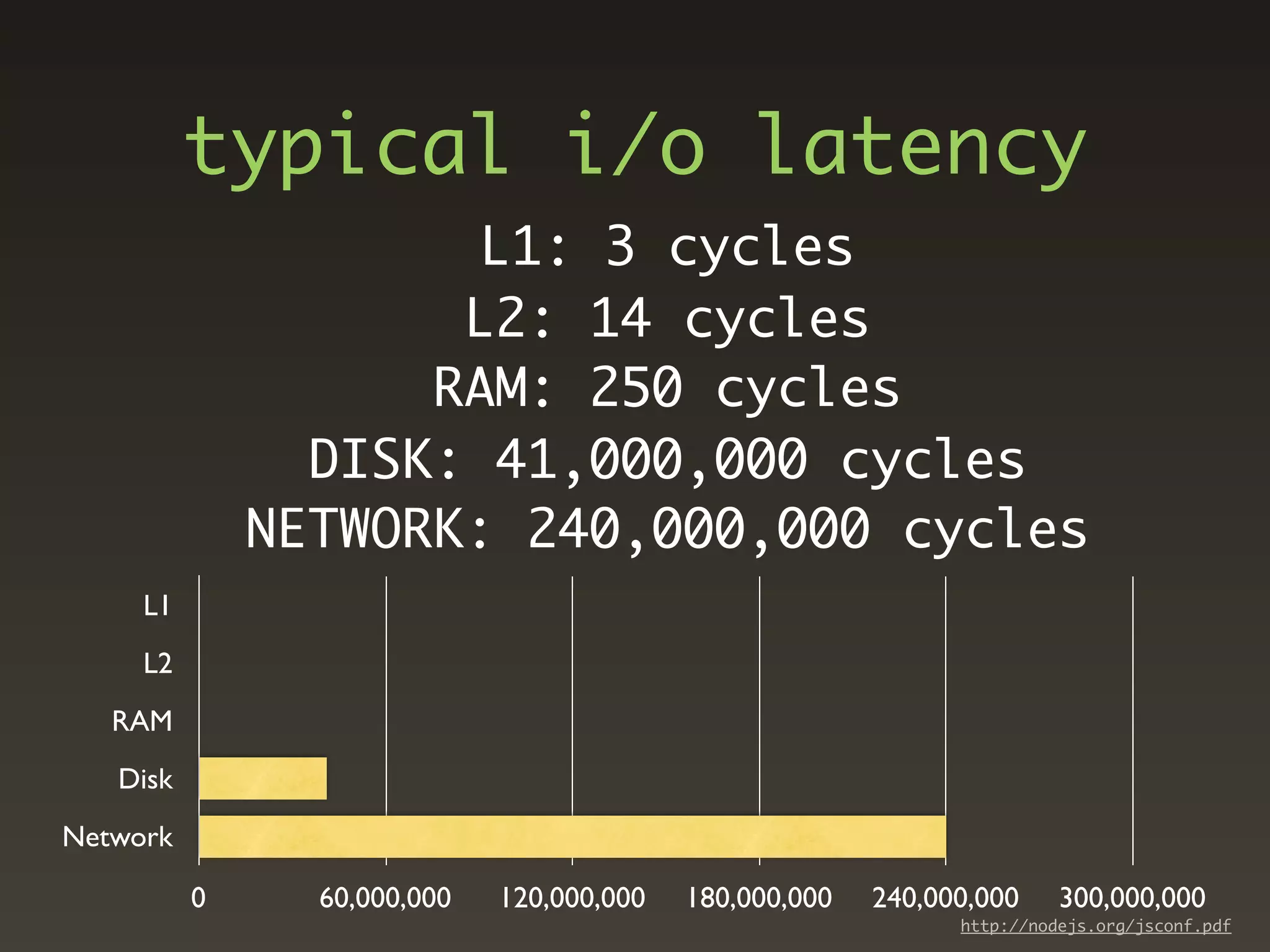


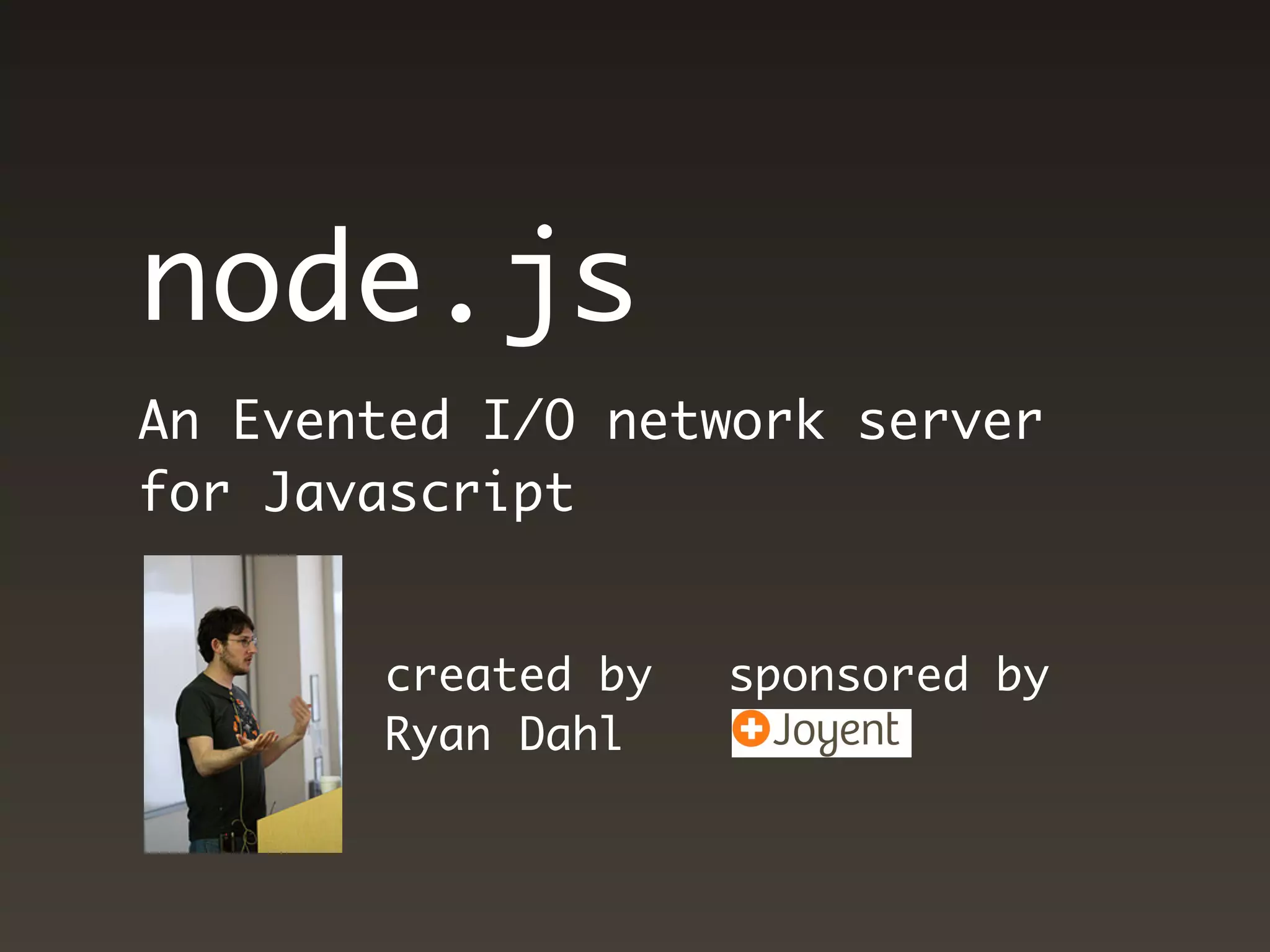
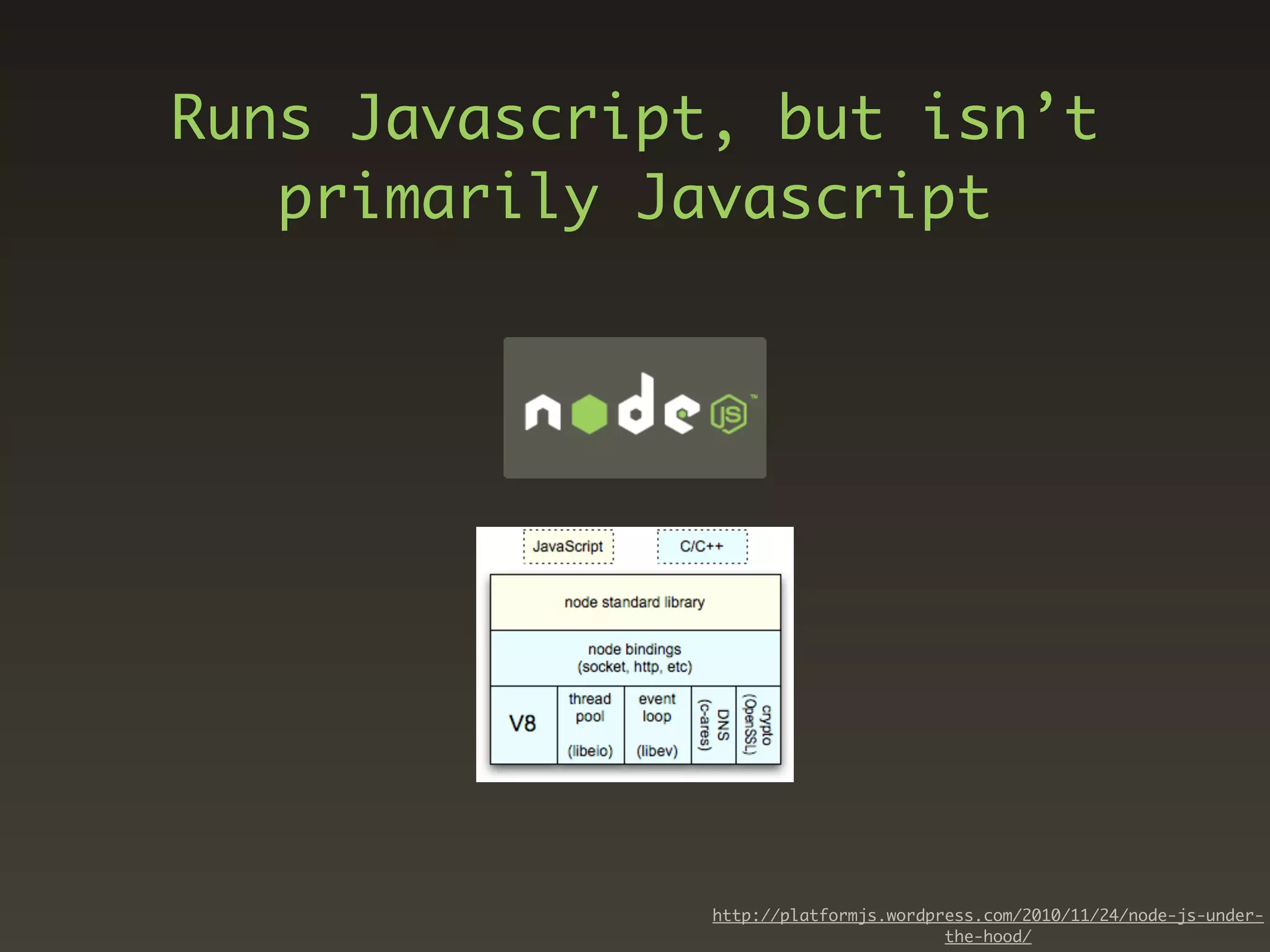
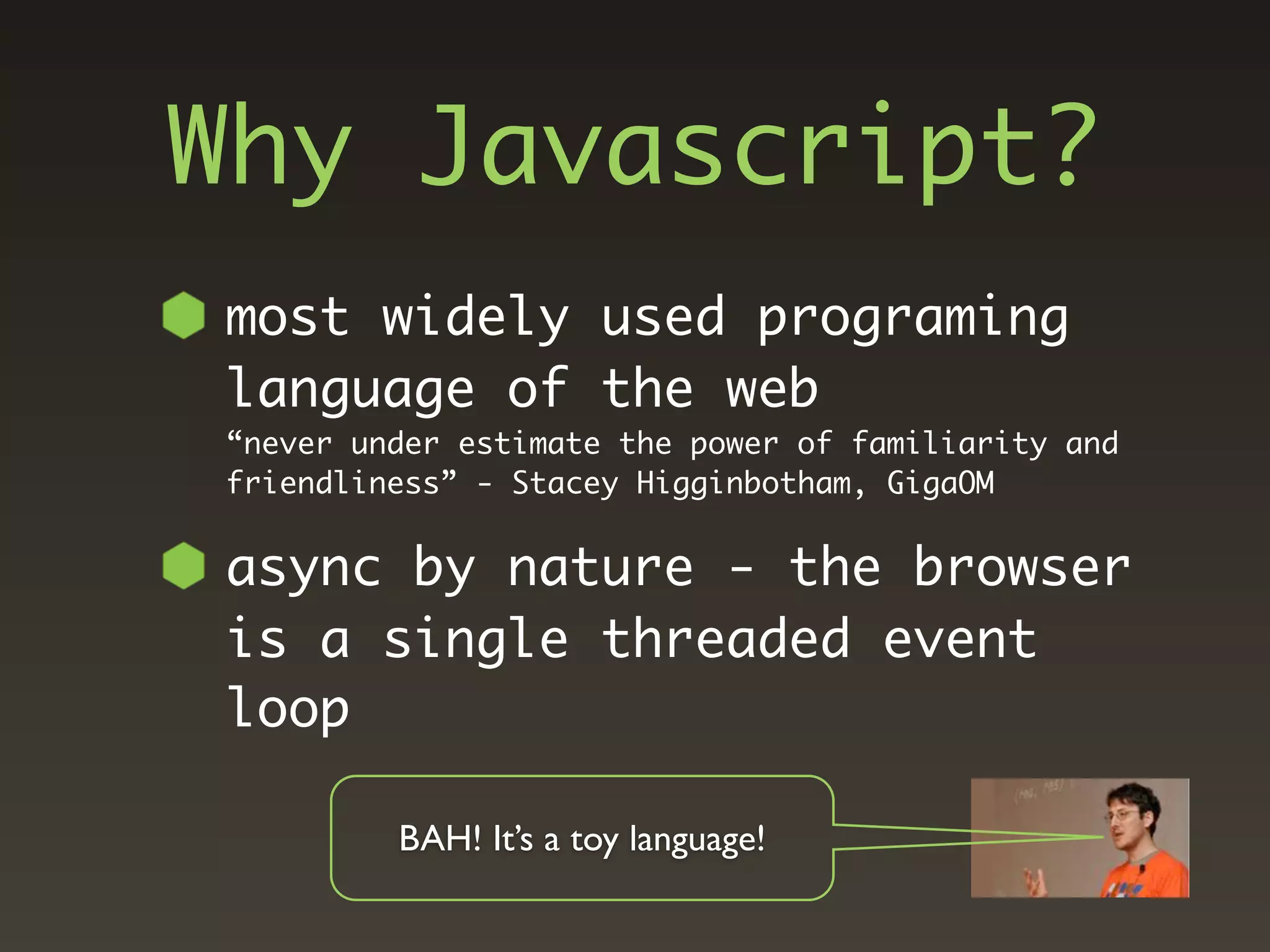
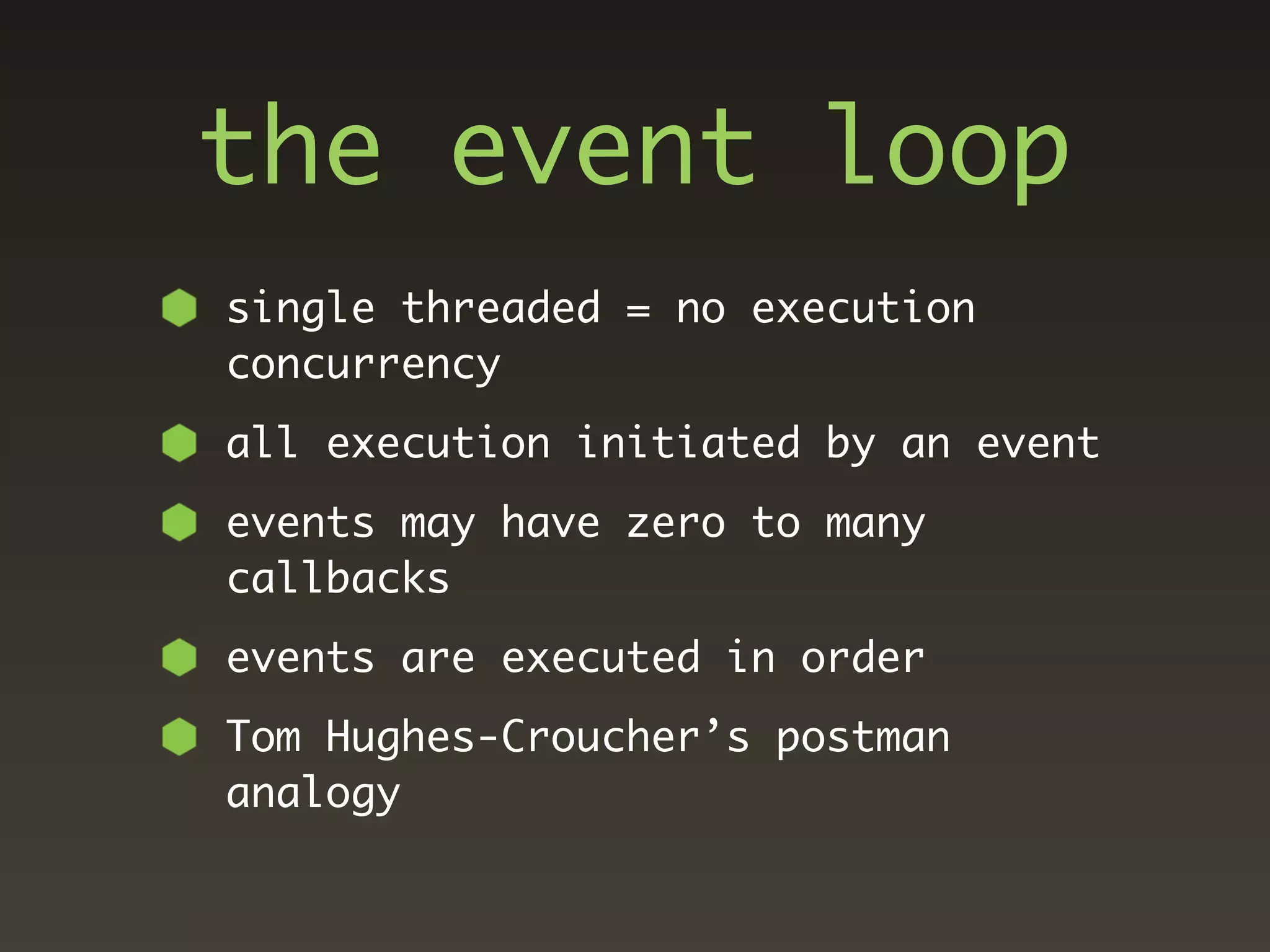
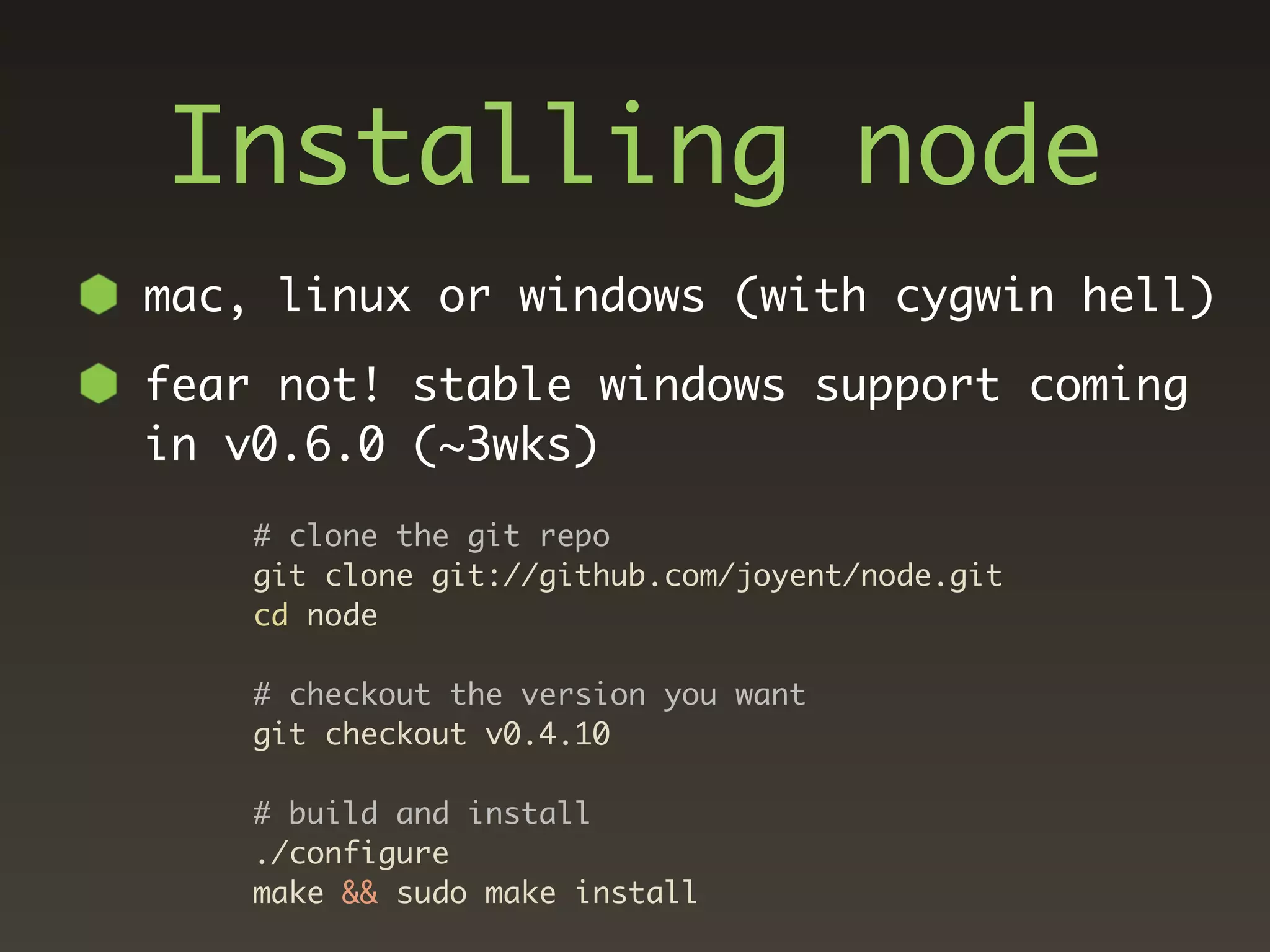
![Running Node
~/ node
> var x=1, y=2, z=3;
> x+y+z
REPL
6
> require('fs').statSync('./blocking.js')
{ dev: 234881026,
Read-Eval-Print-Loop ino: 3162208,
mode: 33188,
nlink: 1,
.....
node app.js arg1 arg2
Invoke script process.argv[0]
process.argv[1]
===
===
"node"
"app.js"
process.argv[2] === "arg1"
process.argv[3] === "arg2"](https://image.slidesharecdn.com/nodejs-async-for-the-rest-of-us-110803083928-phpapp02/75/Node-js-async-for-the-rest-of-us-13-2048.jpg)
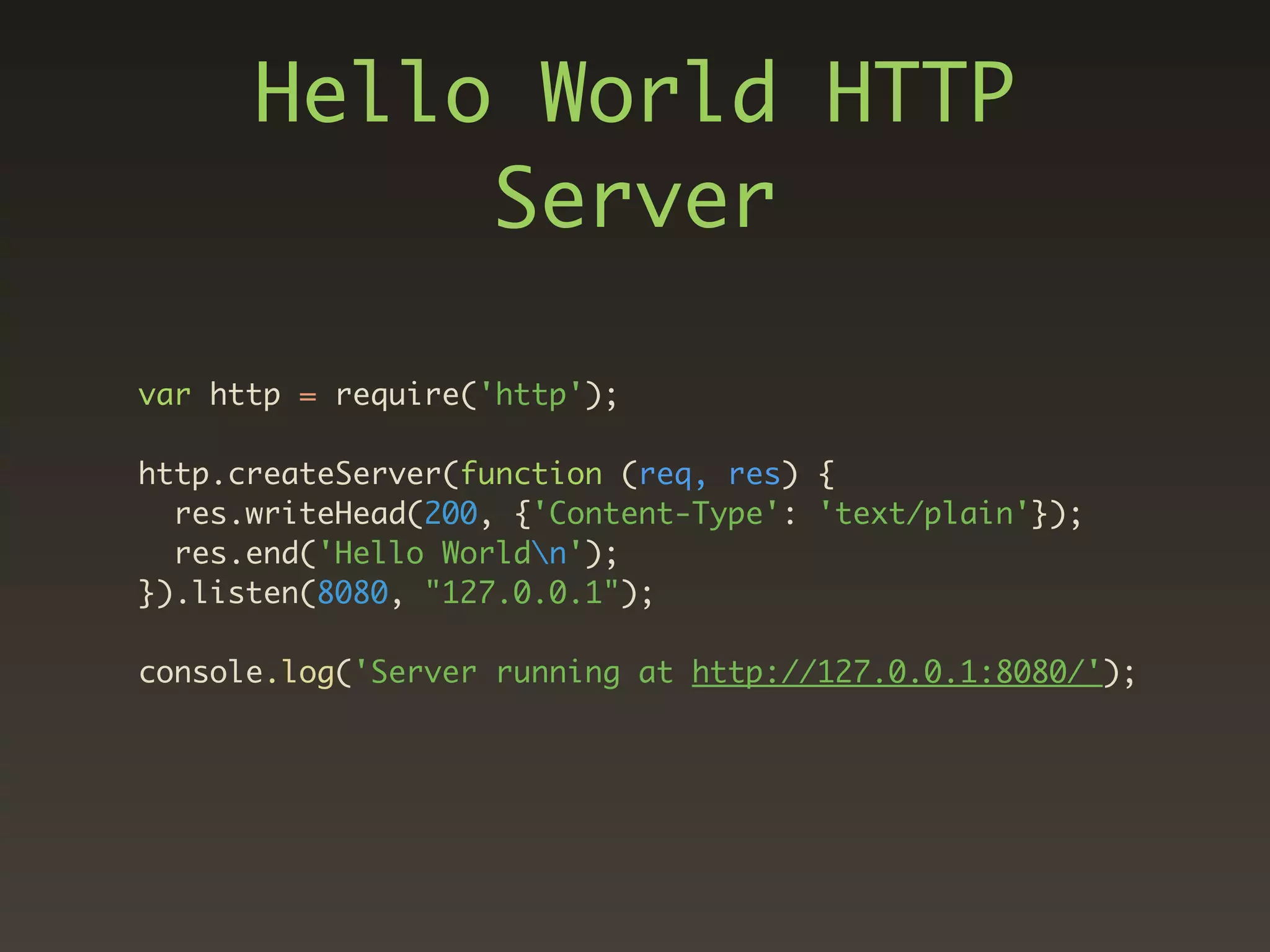
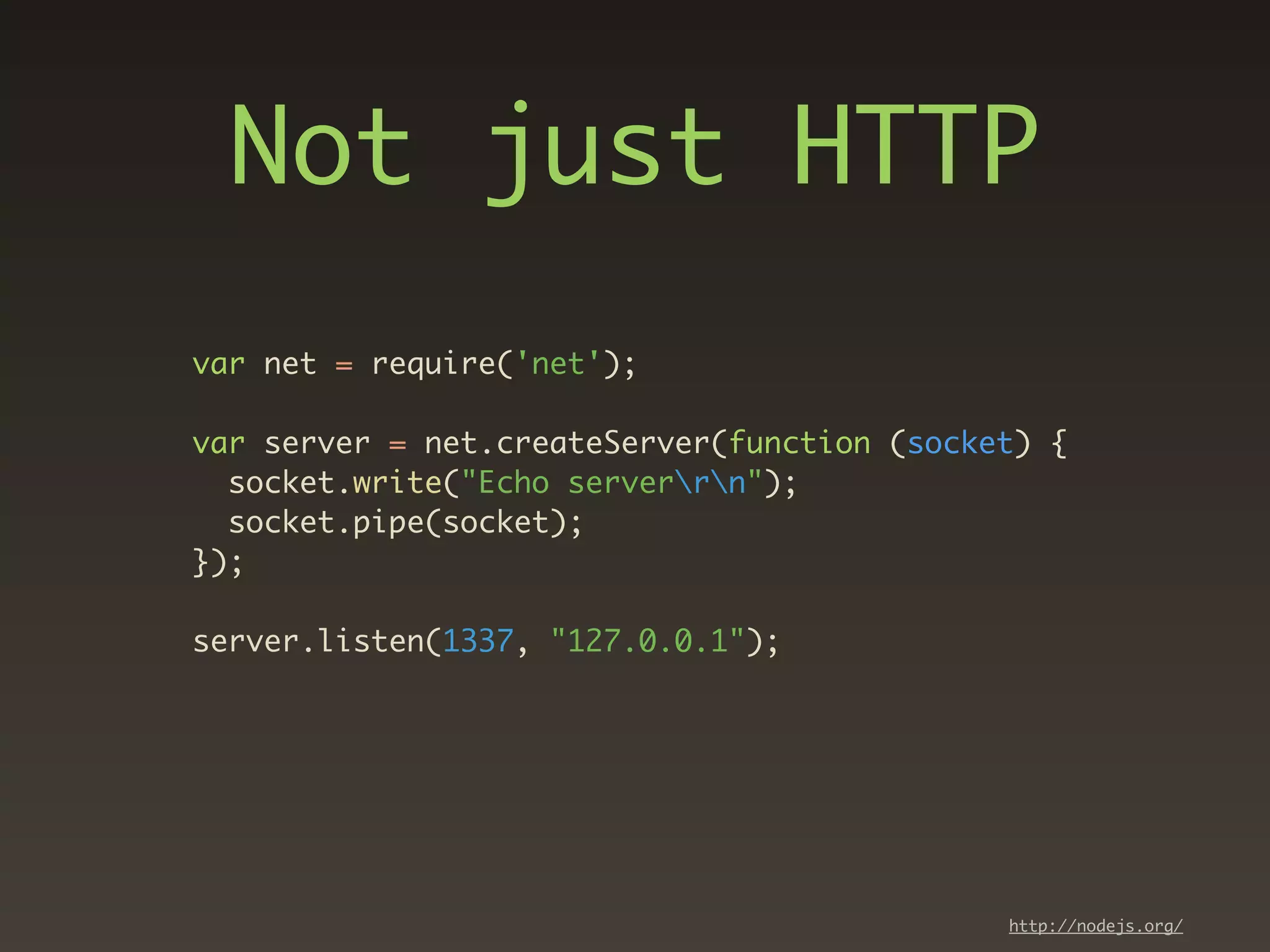

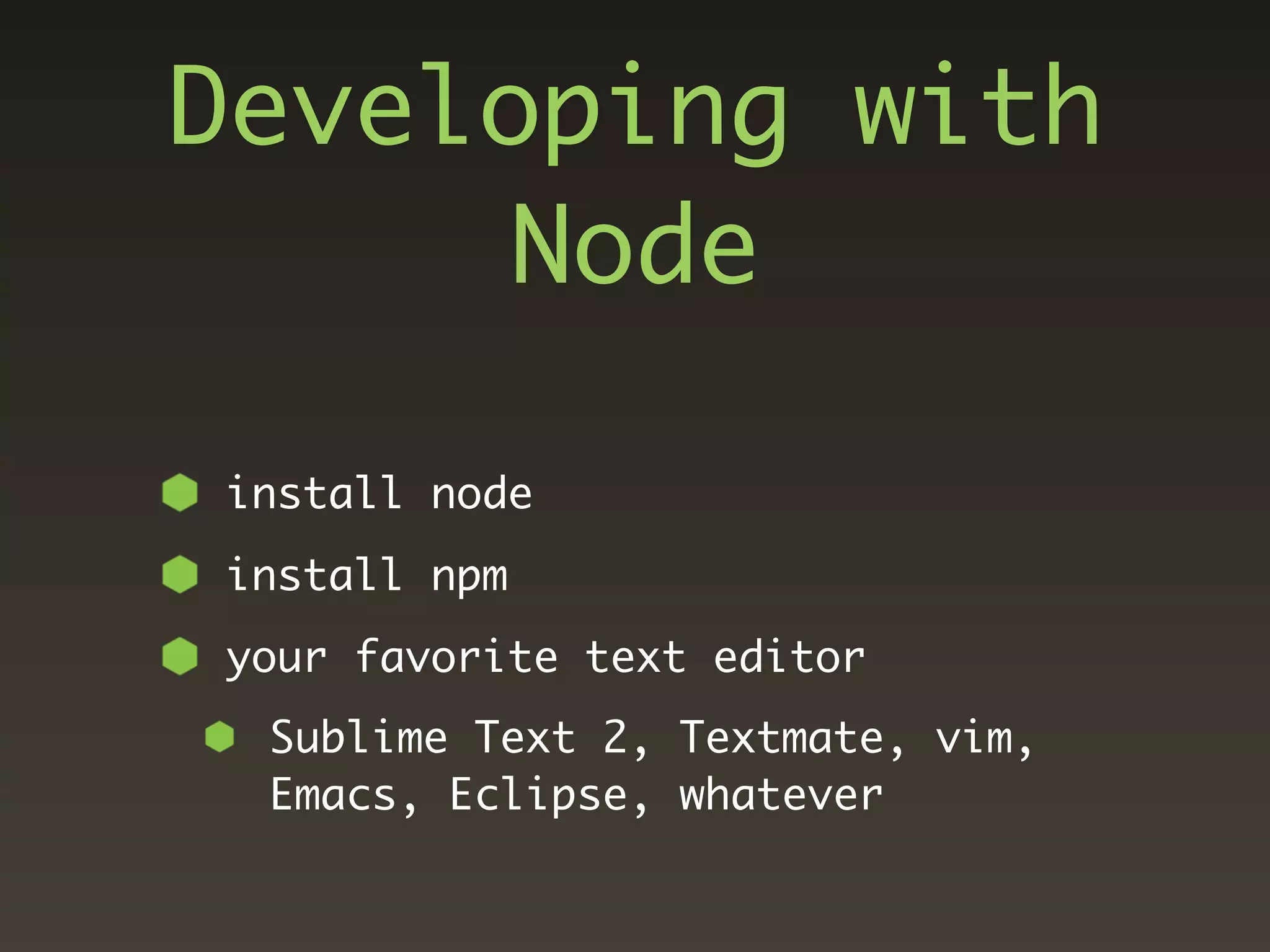
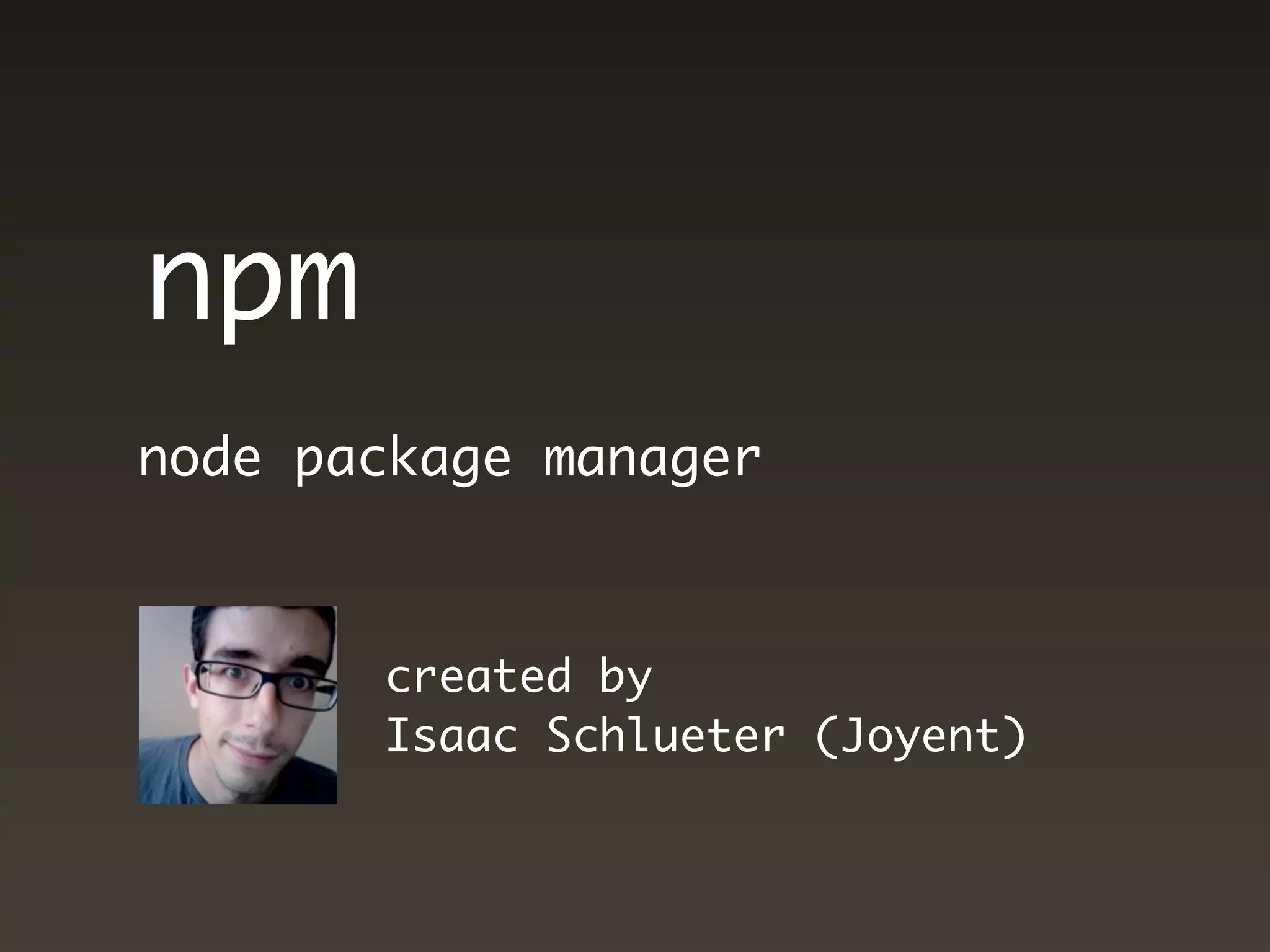
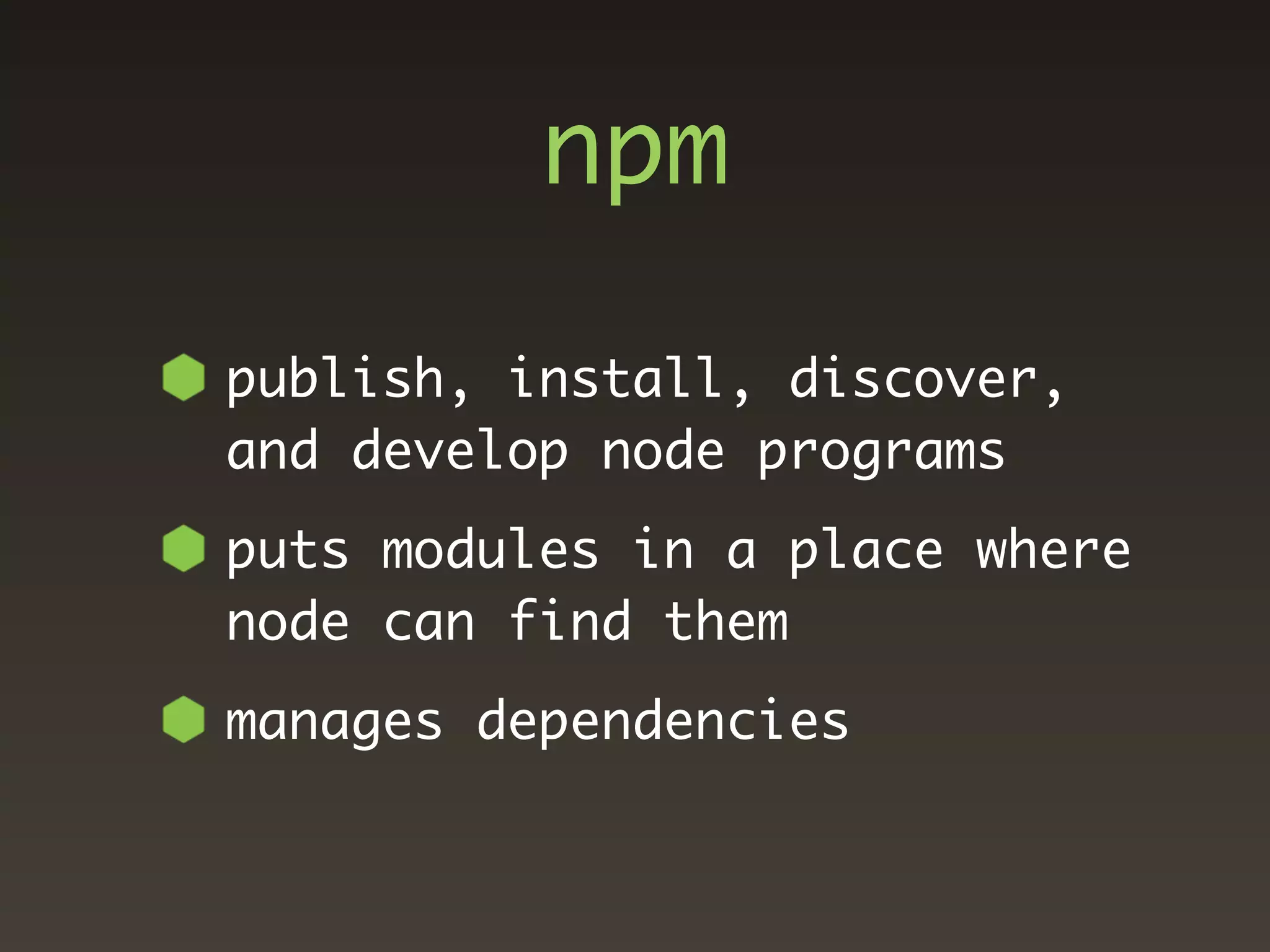
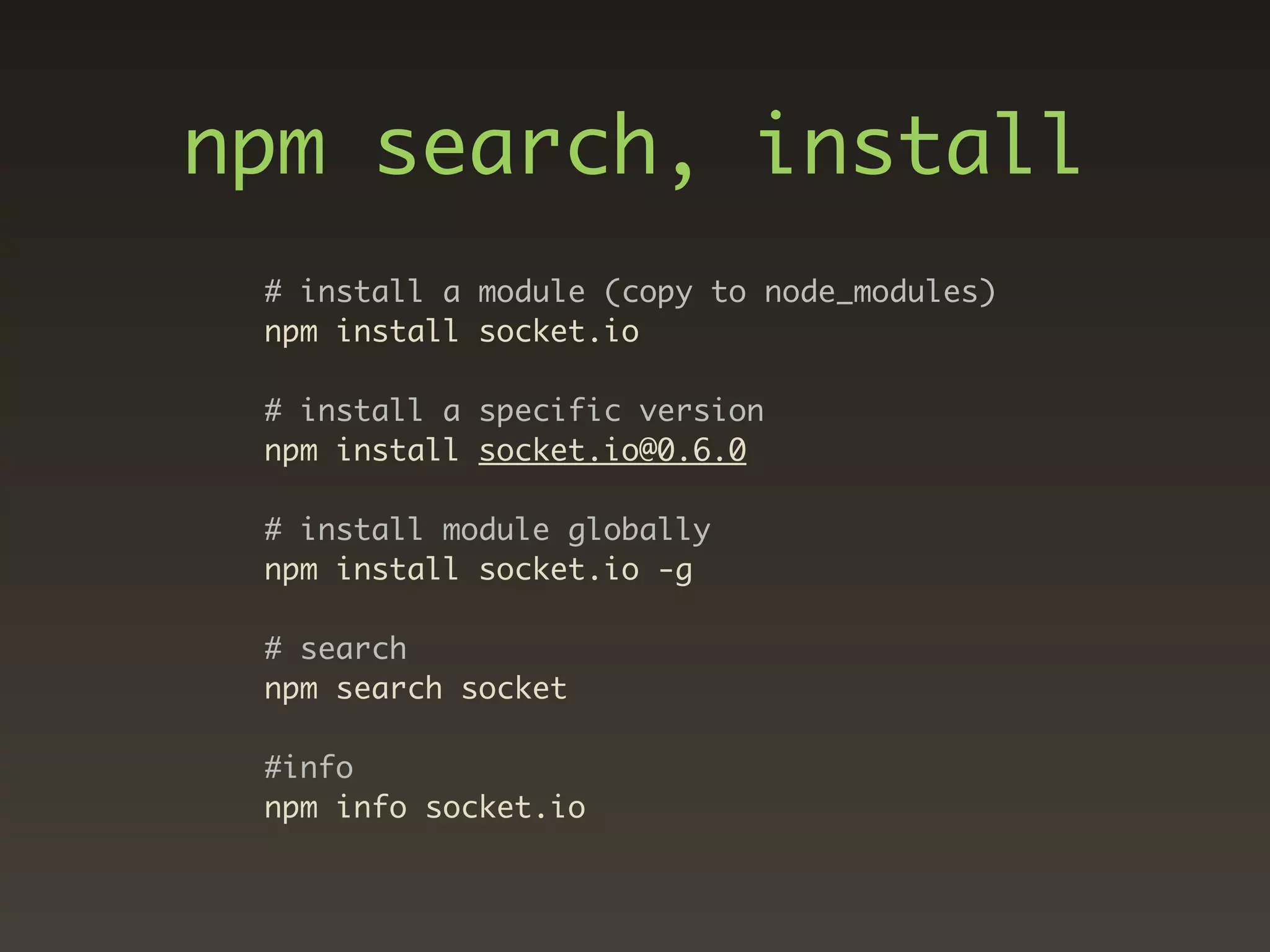
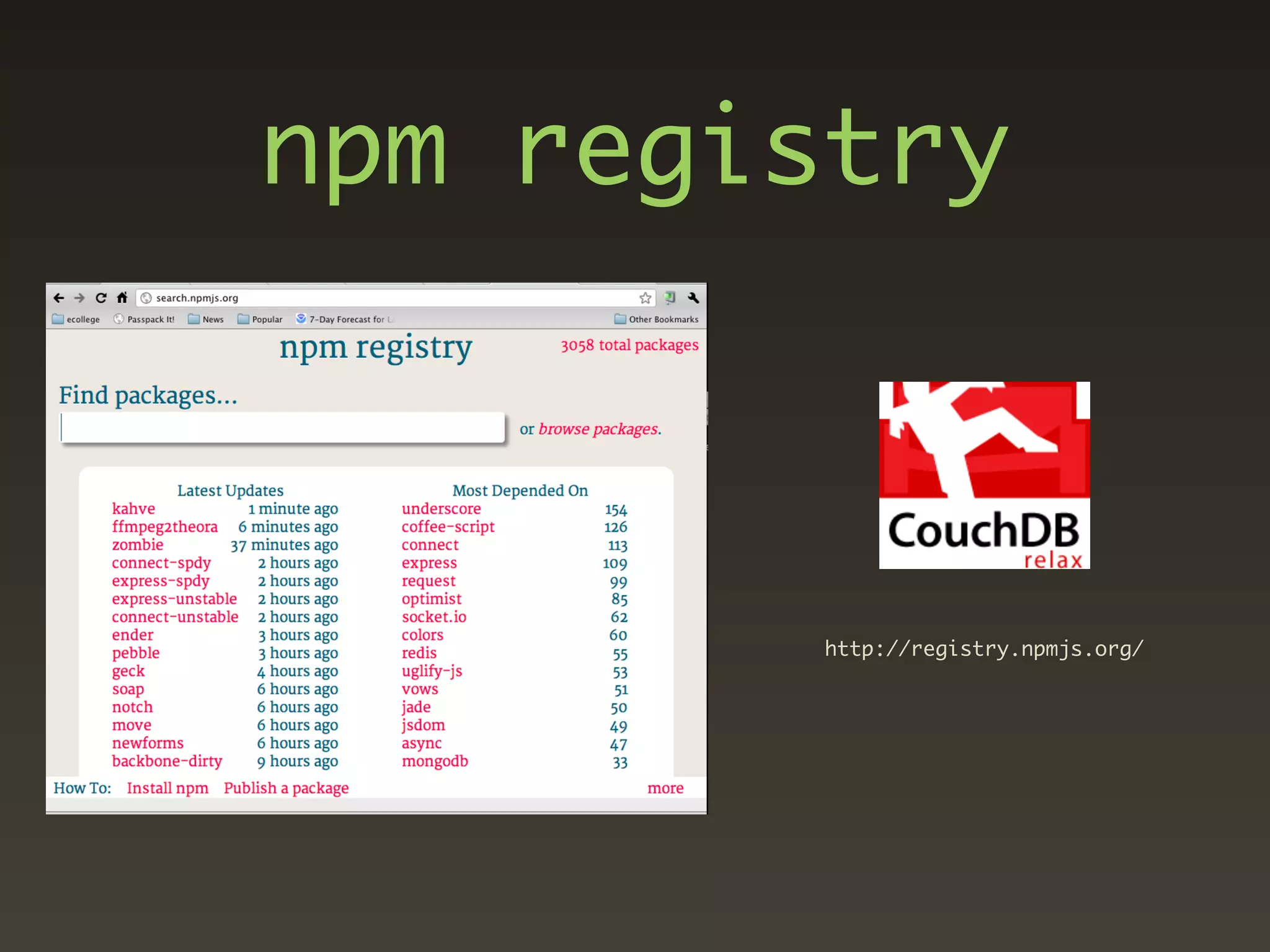
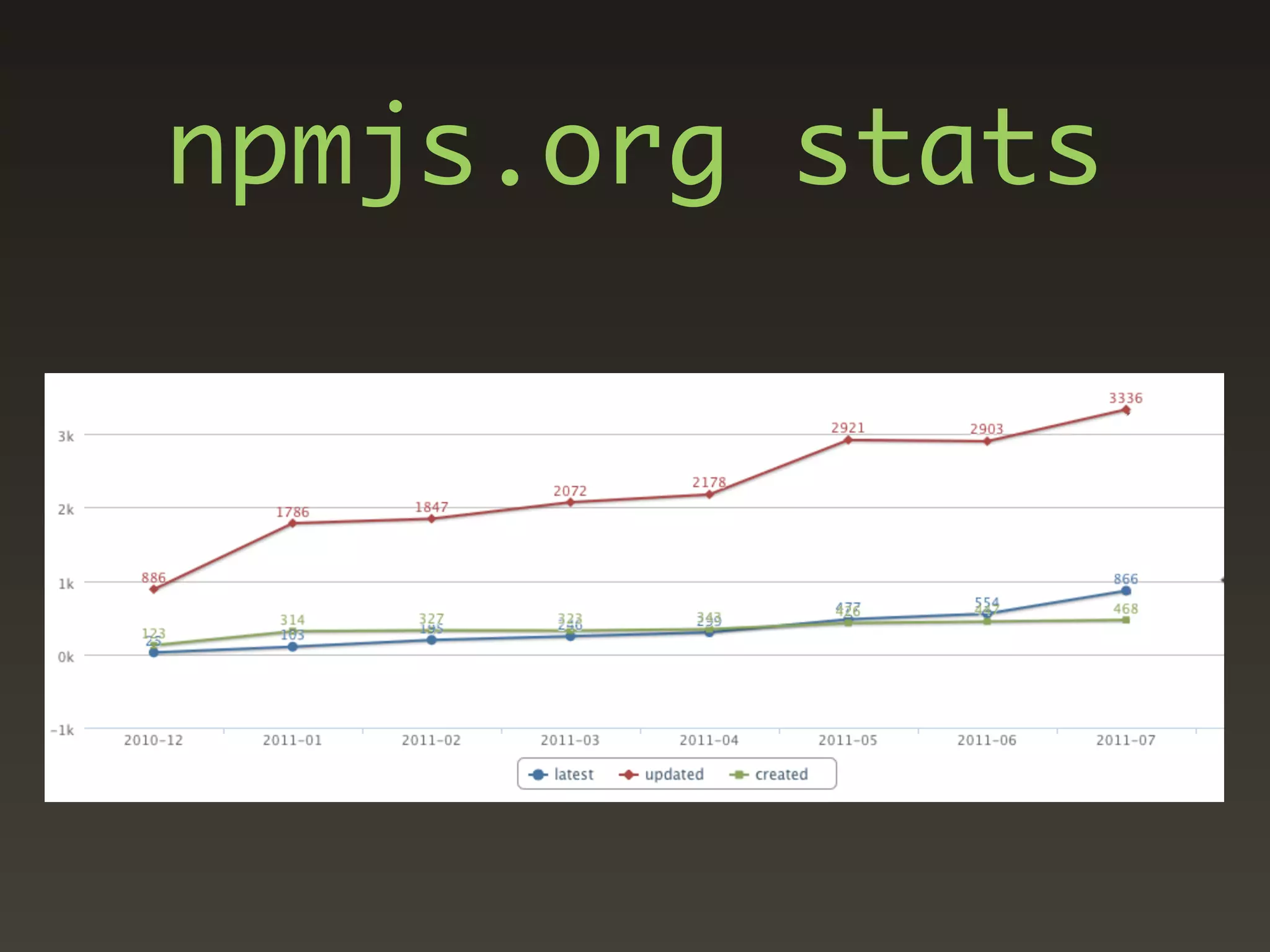
![{
"name": "express",
package.json
"description": "Sinatra inspired web development framework",
"version": "3.0.0",
"author": "TJ Holowaychuk <tj@vision-media.ca>",
"contributors": [
{ "name": "TJ Holowaychuk", "email": "tj@vision-media.ca" },
{ "name": "Aaron Heckmann", "email": "aaron.heckmann+github@gmail.com" },
{ "name": "Ciaran Jessup", "email": "ciaranj@gmail.com" },
{ "name": "Guillermo Rauch", "email": "rauchg@gmail.com" }
],
"dependencies": {
"connect": ">= 1.5.2 < 2.0.0",
"mime": ">= 0.0.1",
"qs": ">= 0.3.0"
},
"devDependencies": {
"connect-form": "0.2.1",
"ejs": "0.4.2",
"expresso": "0.8.1",
"hamljs": "0.5.1",
"jade": "0.13.0",
"stylus": "0.13.0",
"should": "0.2.1",
"express-messages": "0.0.2",
"node-markdown": ">= 0.0.1",
"connect-redis": ">= 0.0.1"
},
"keywords": ["framework", "sinatra", "web", "rest", "restful"],
"repository": "git://github.com/visionmedia/express",
"main": "index",
"bin": { "express": "./bin/express" },
"scripts": {
"test": "make test",
"prepublish" : "npm prune"
},
"engines": { "node": ">= 0.4.9 < 0.7.0" }
}](https://image.slidesharecdn.com/nodejs-async-for-the-rest-of-us-110803083928-phpapp02/75/Node-js-async-for-the-rest-of-us-23-2048.jpg)
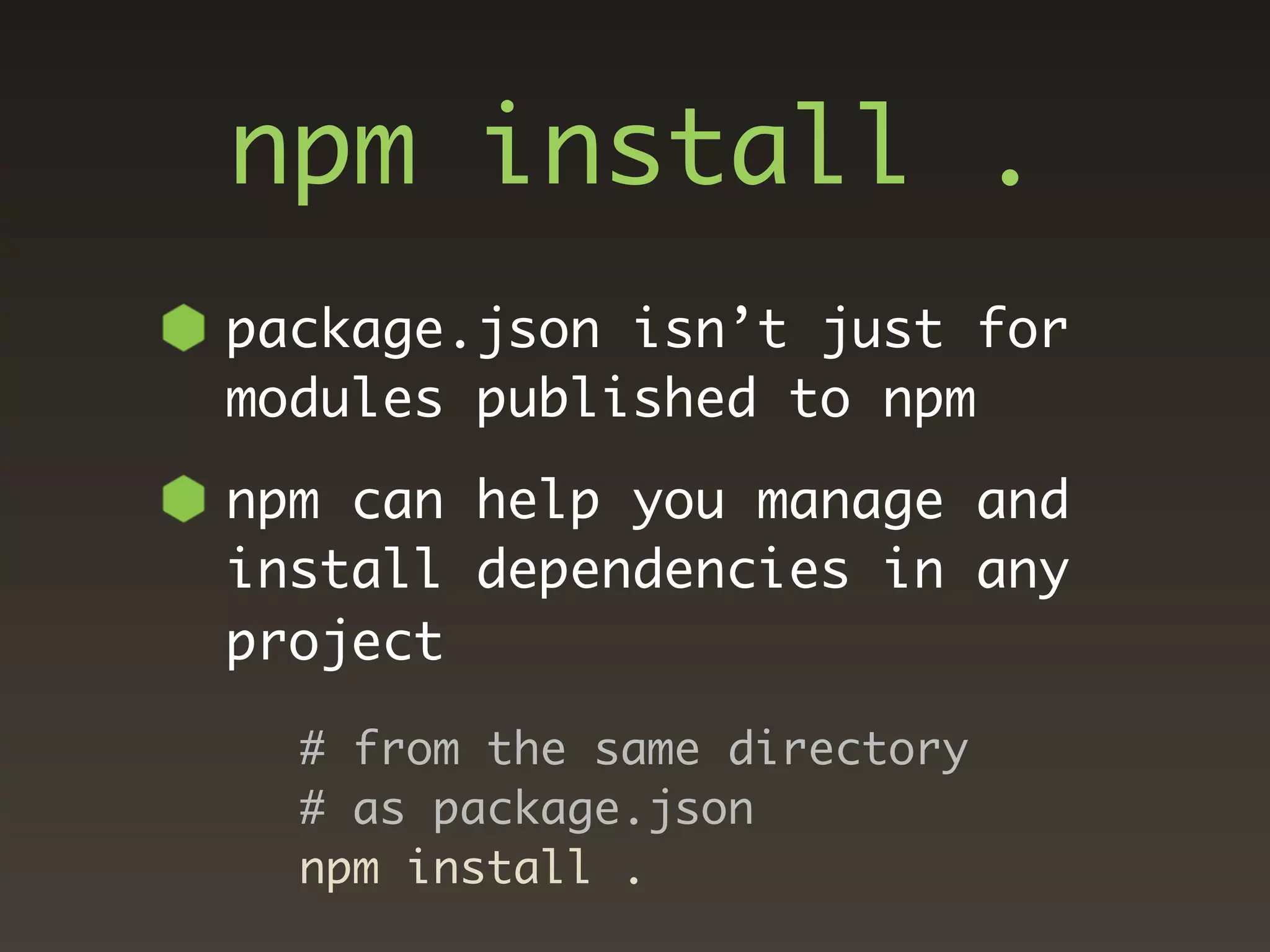
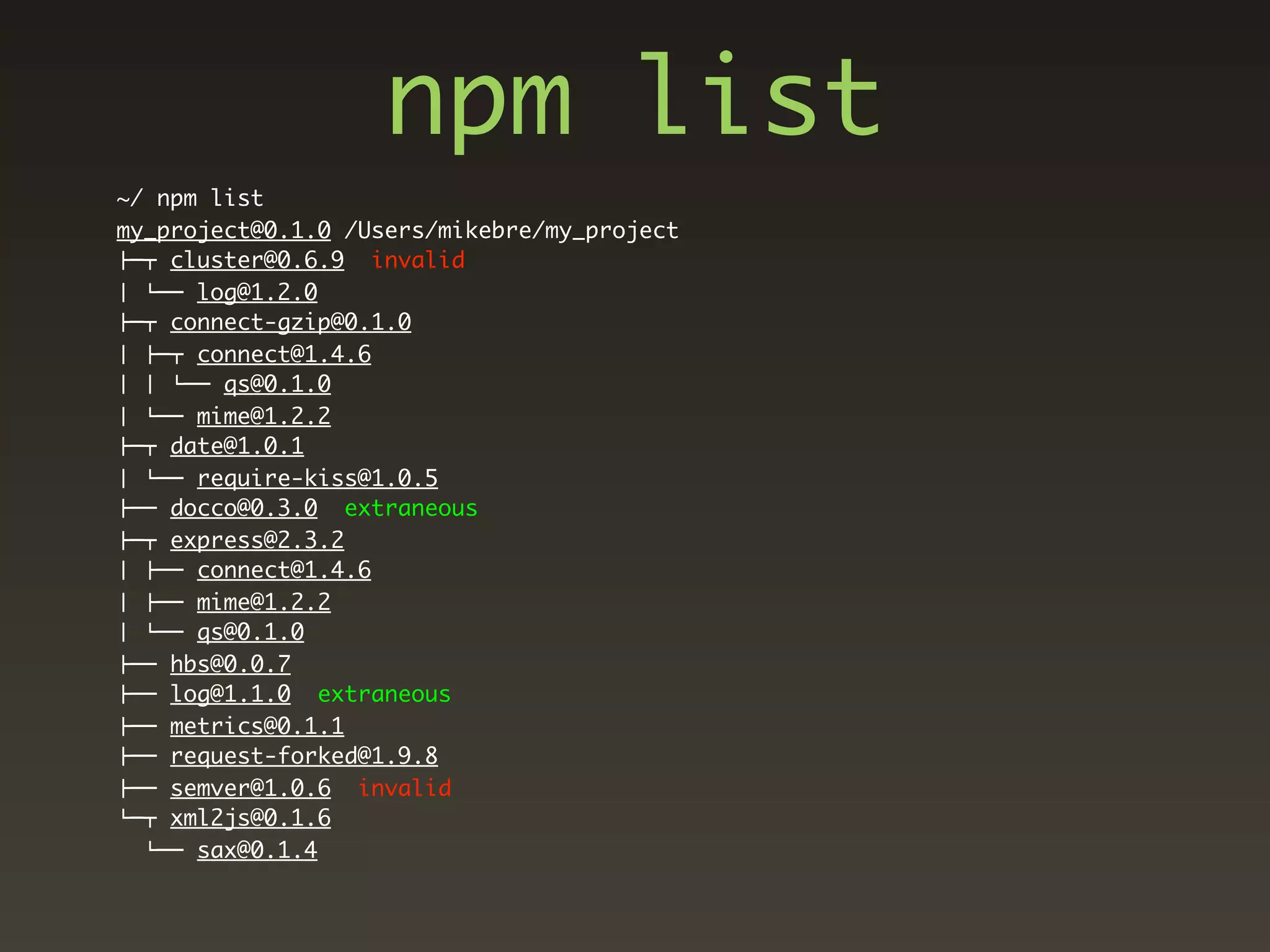
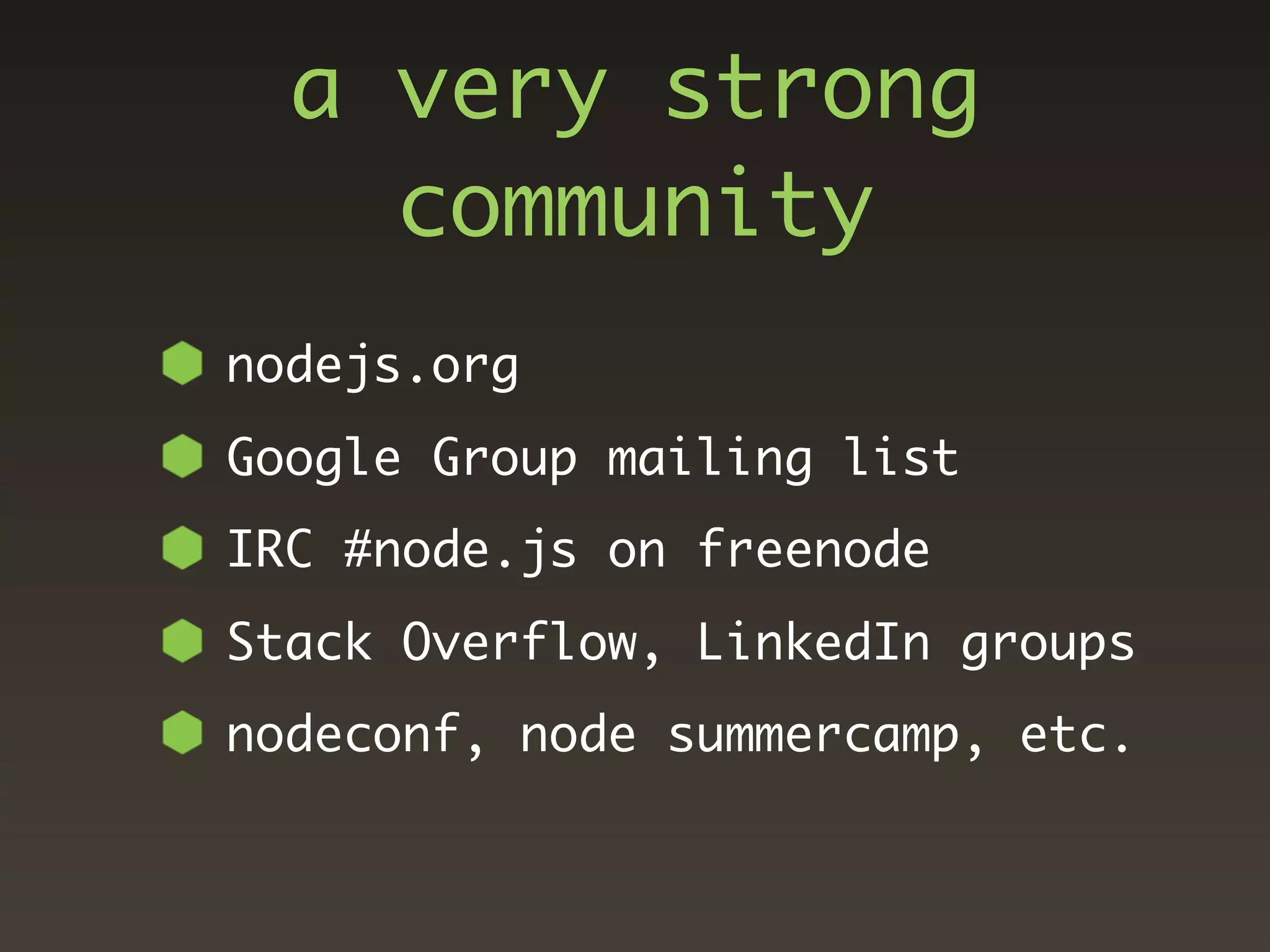

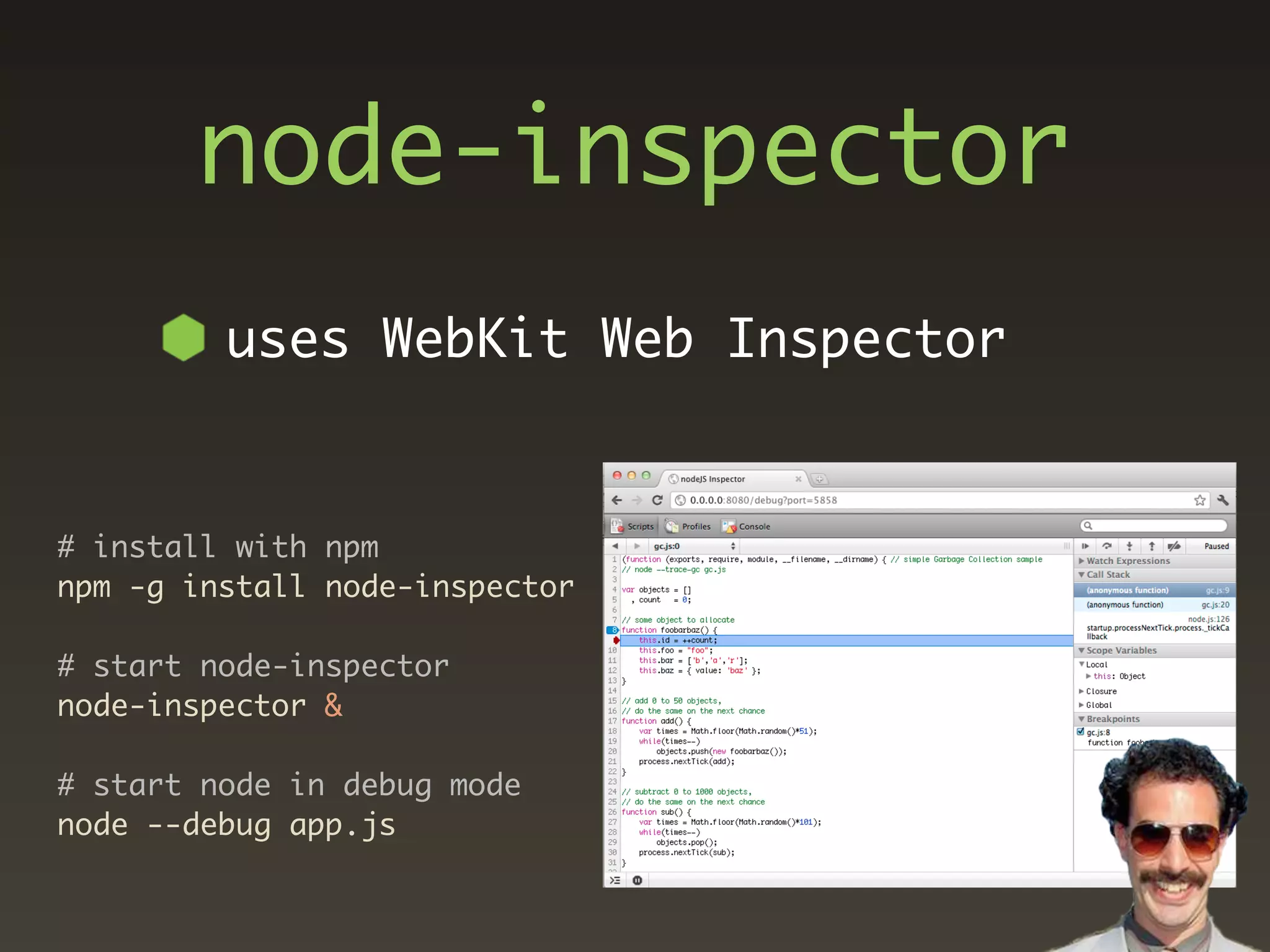
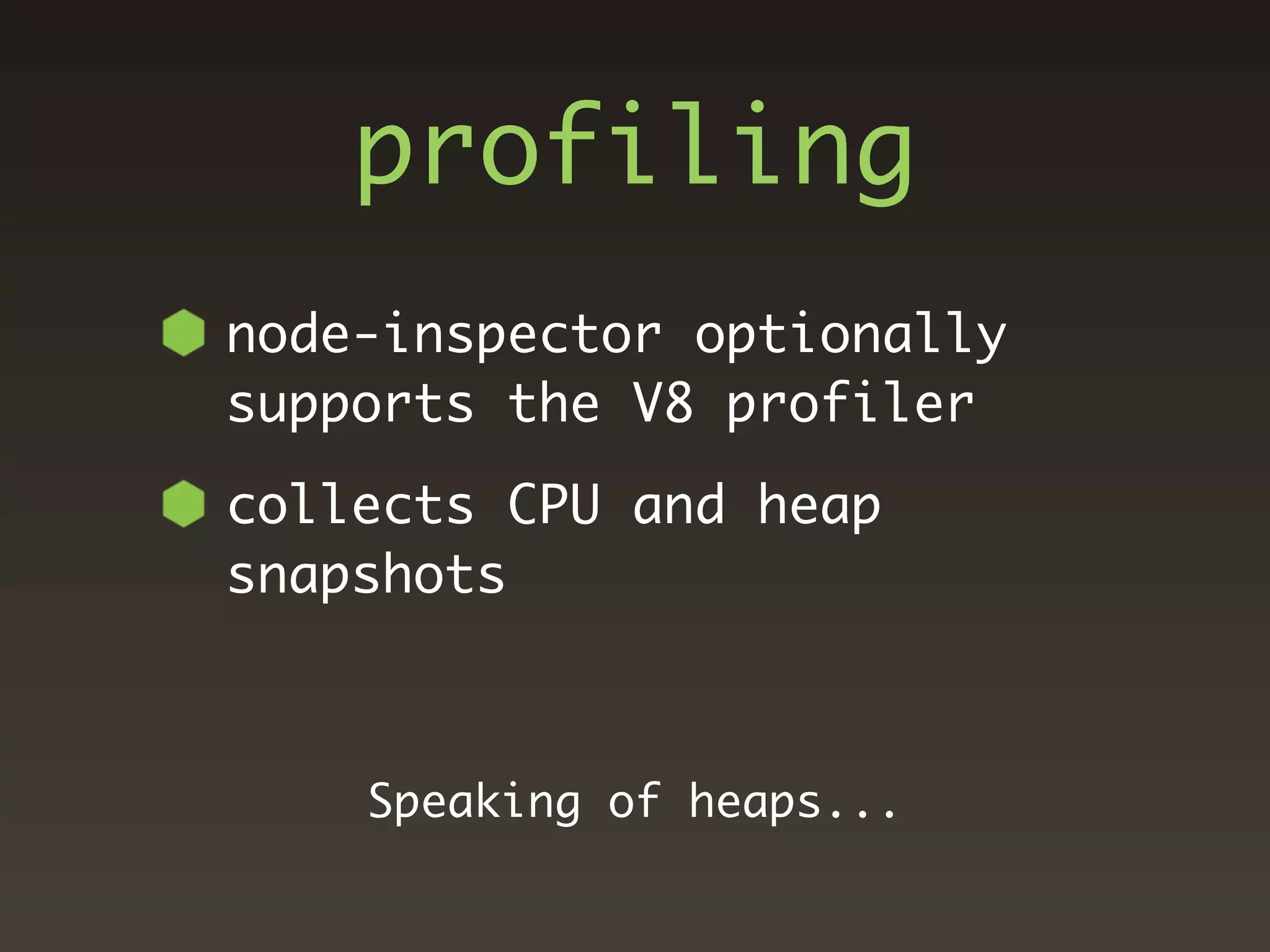
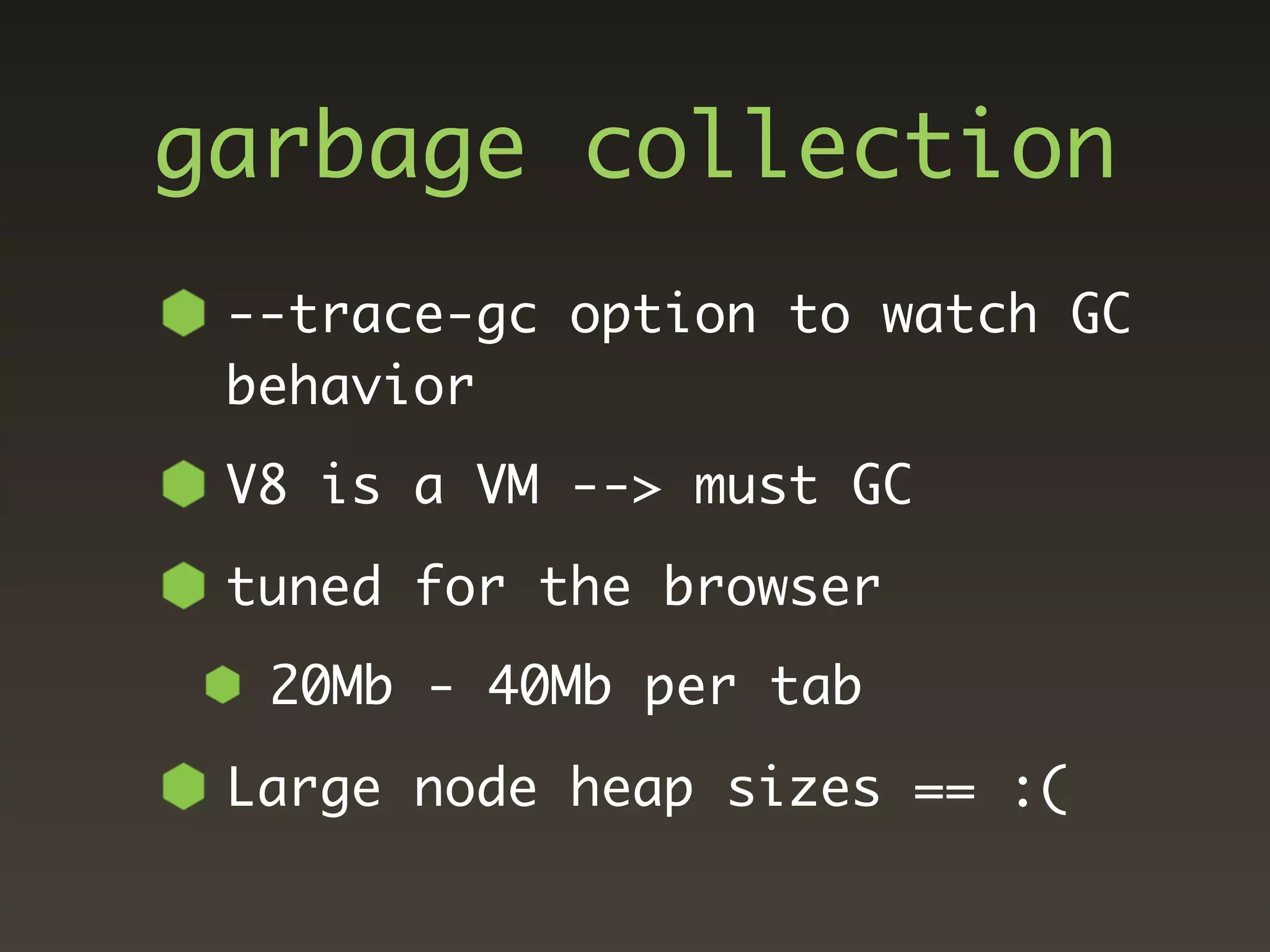


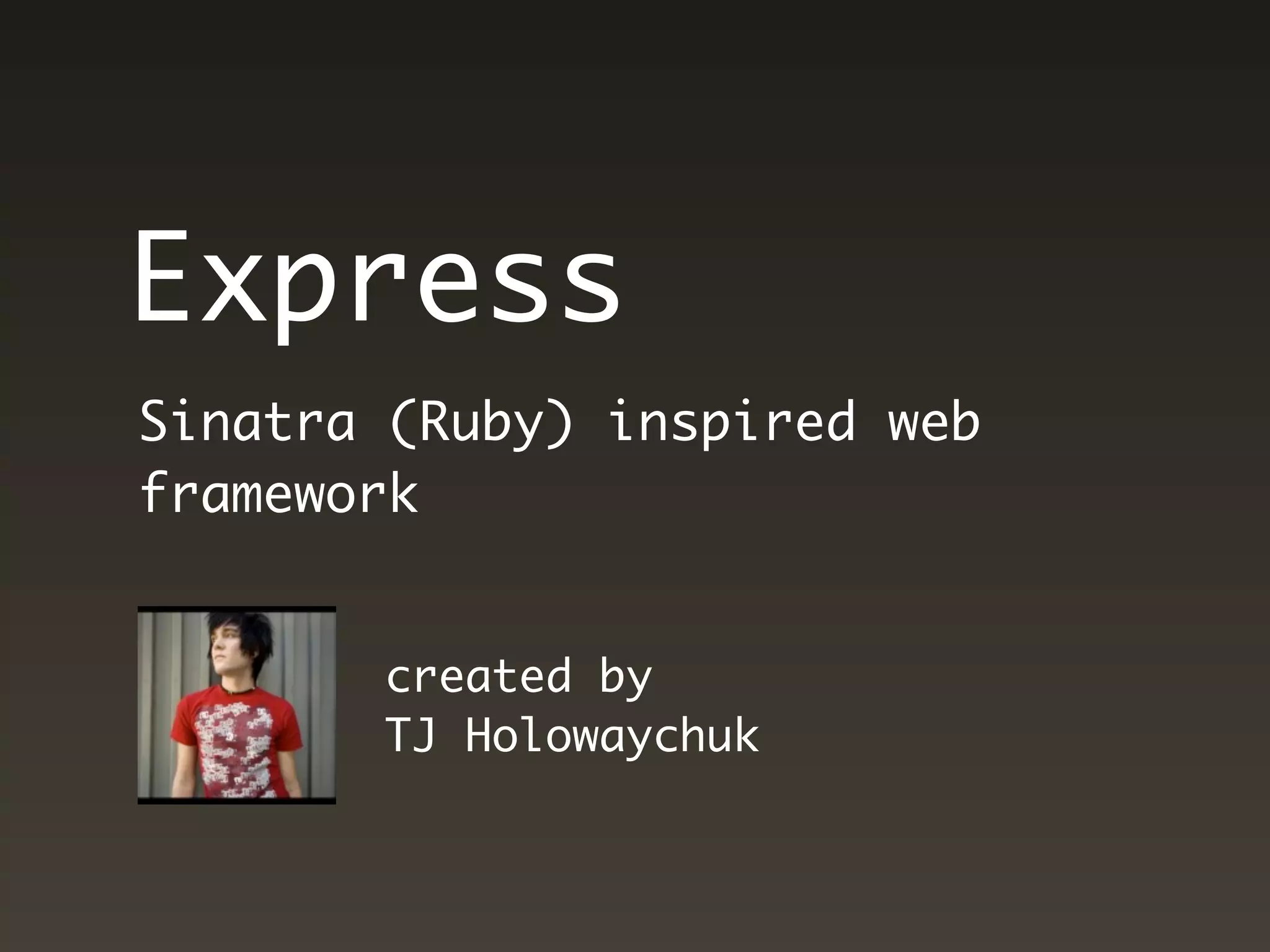
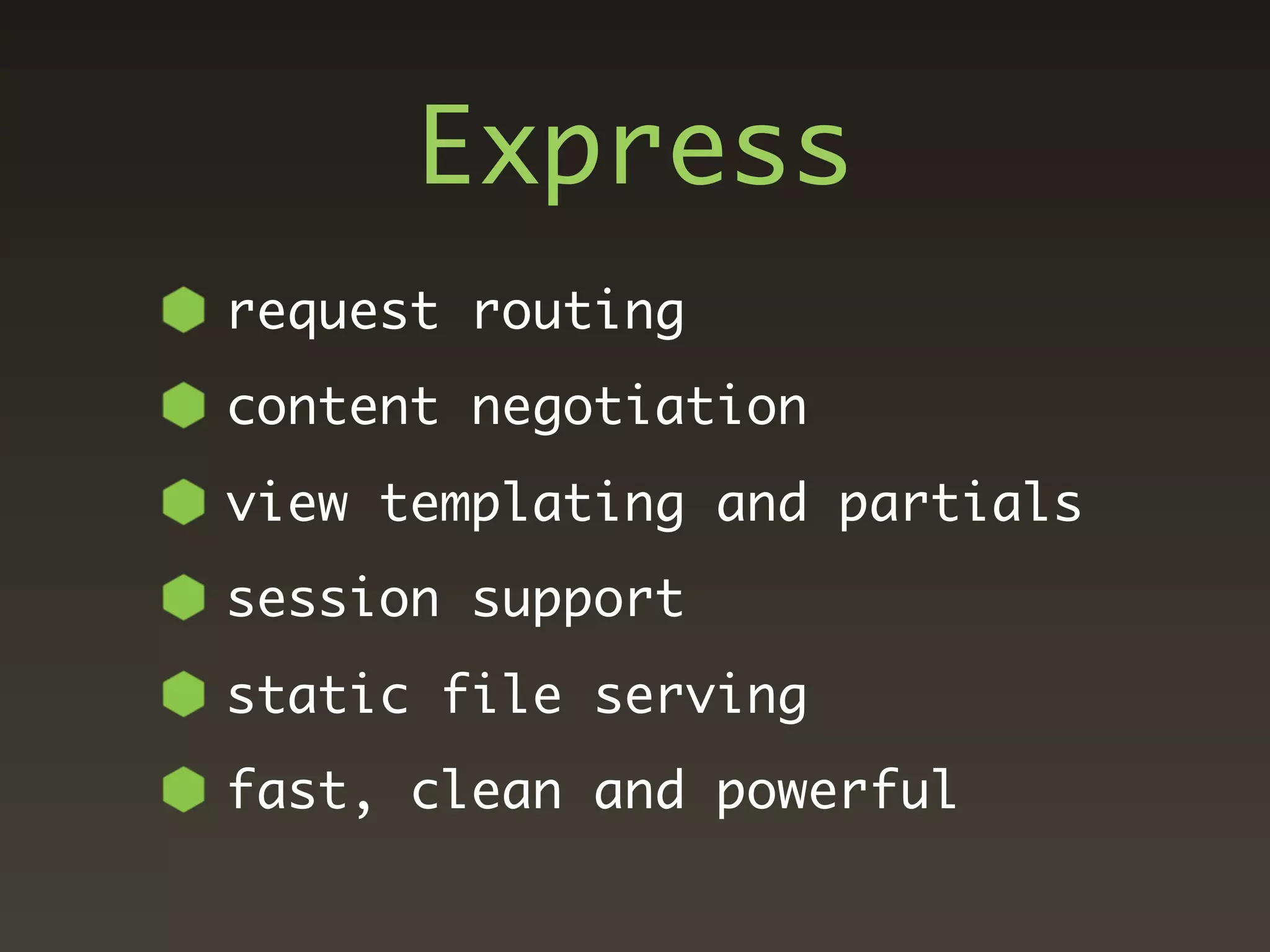

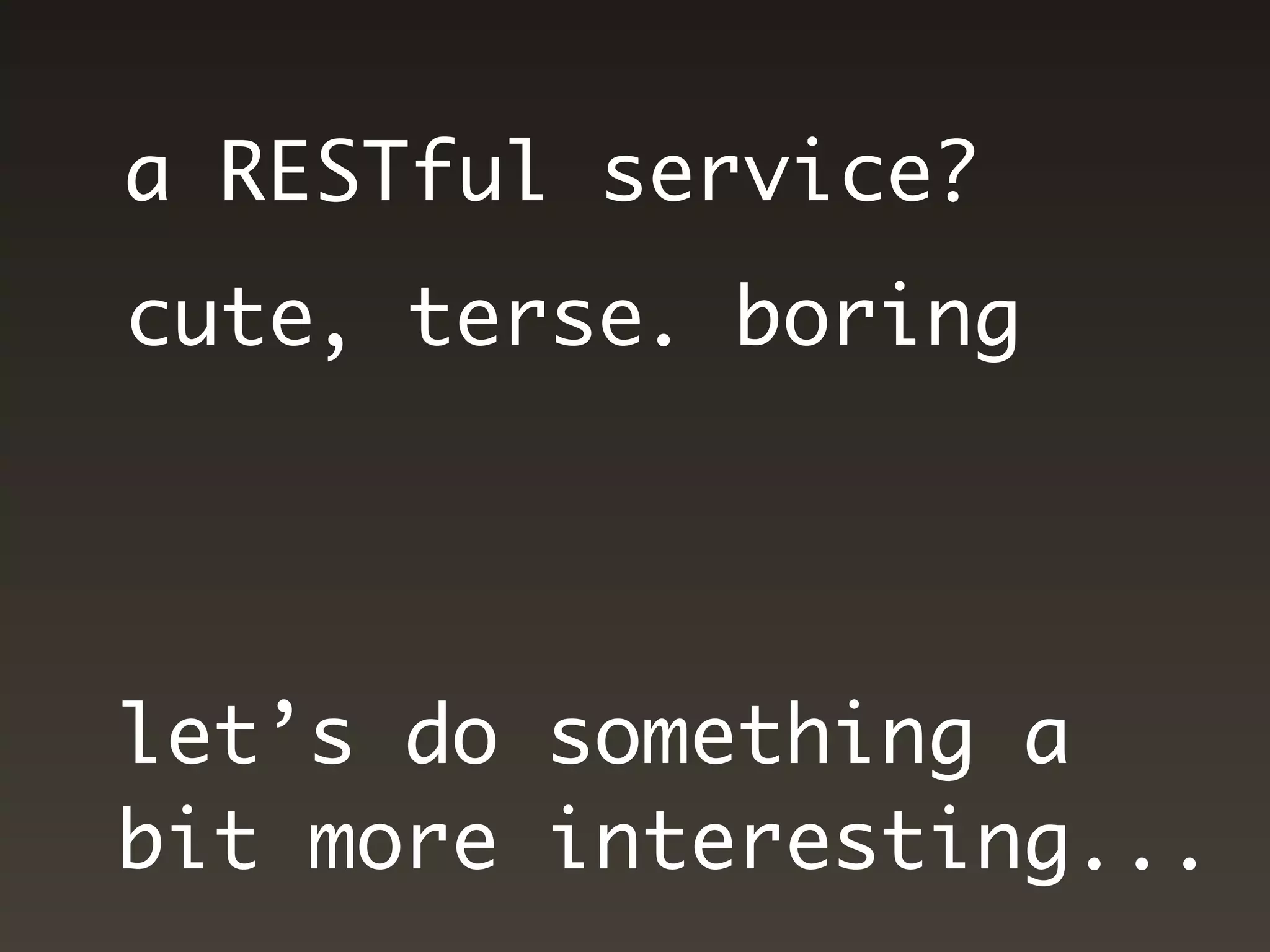

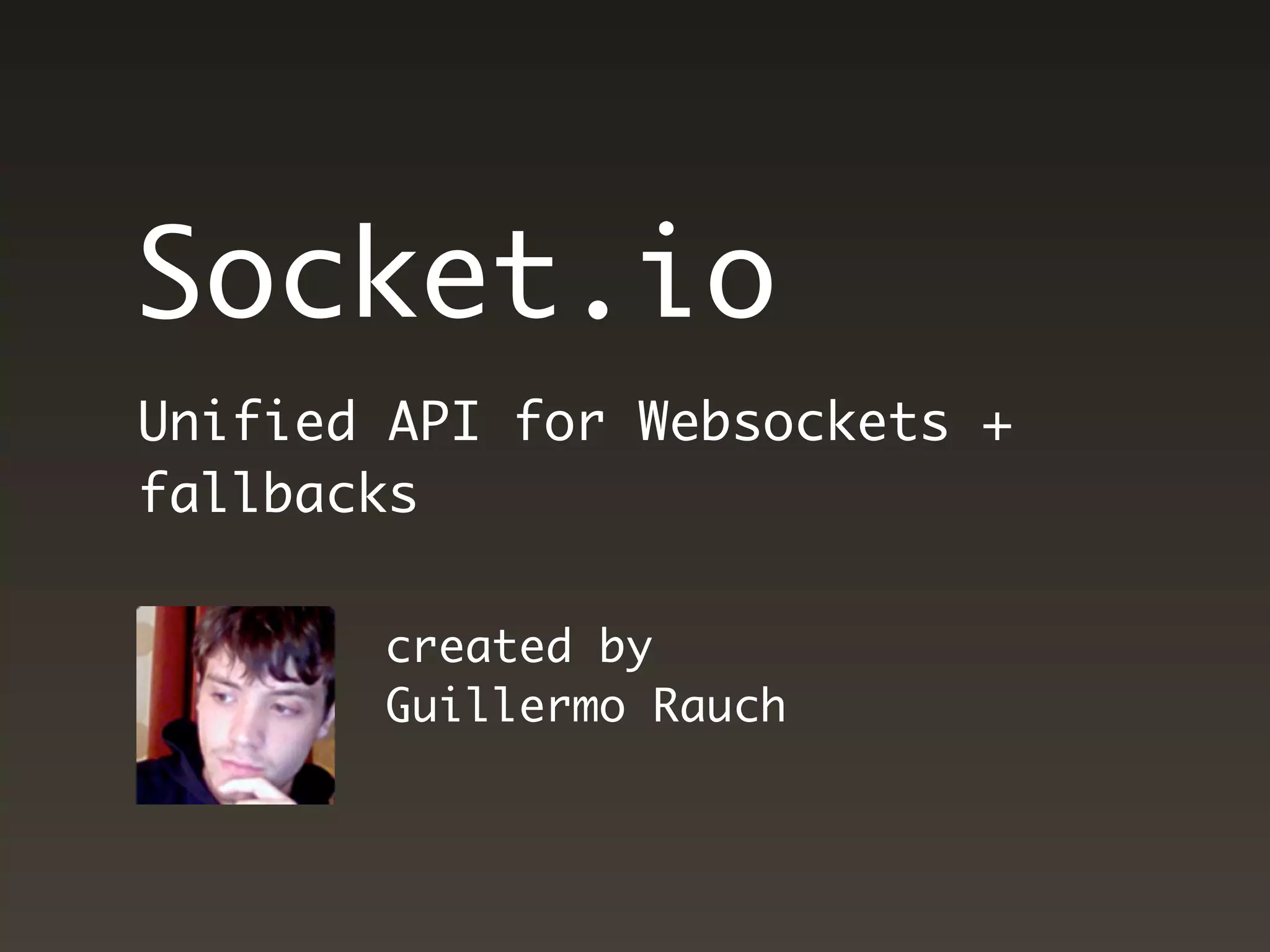
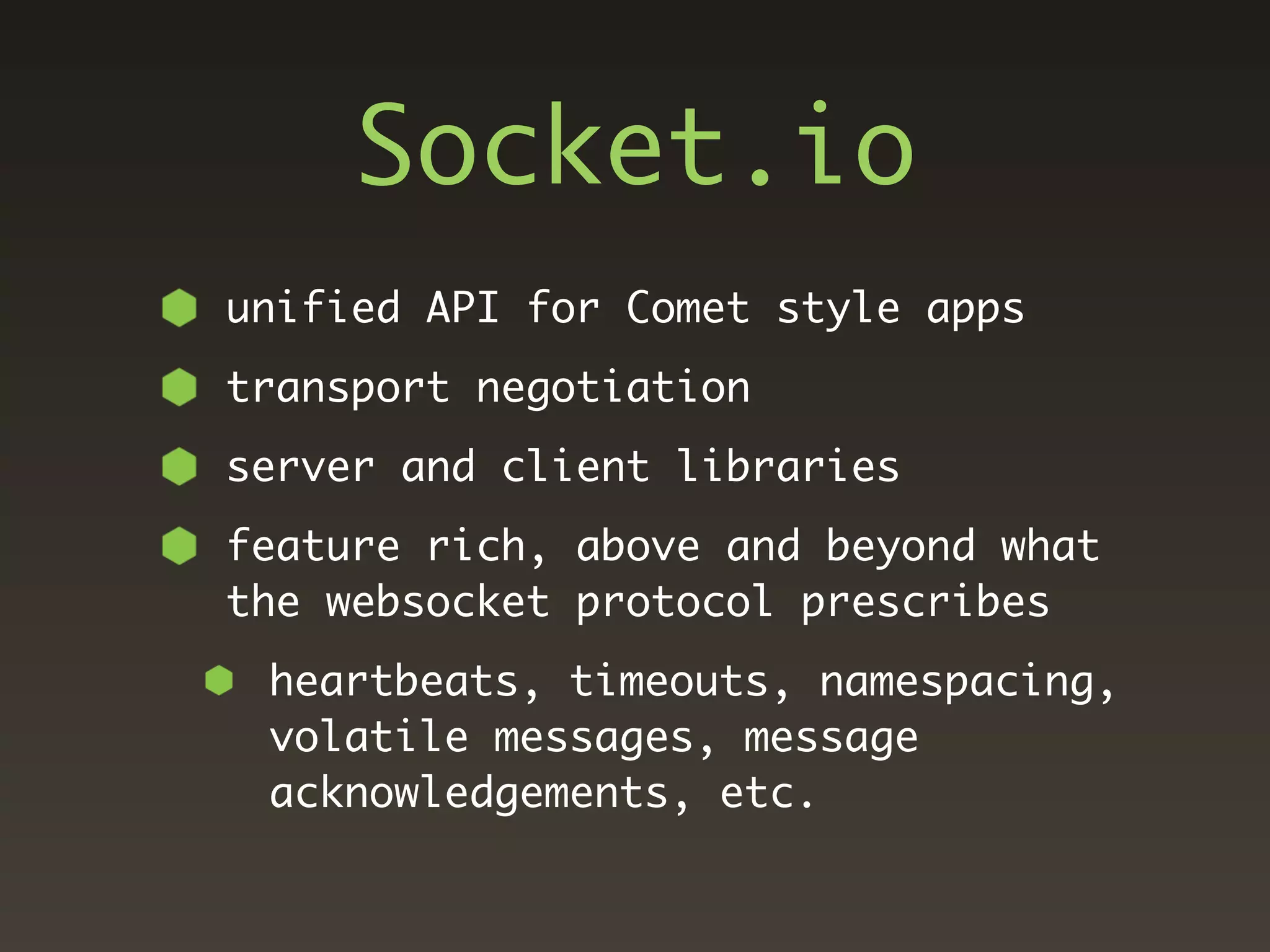


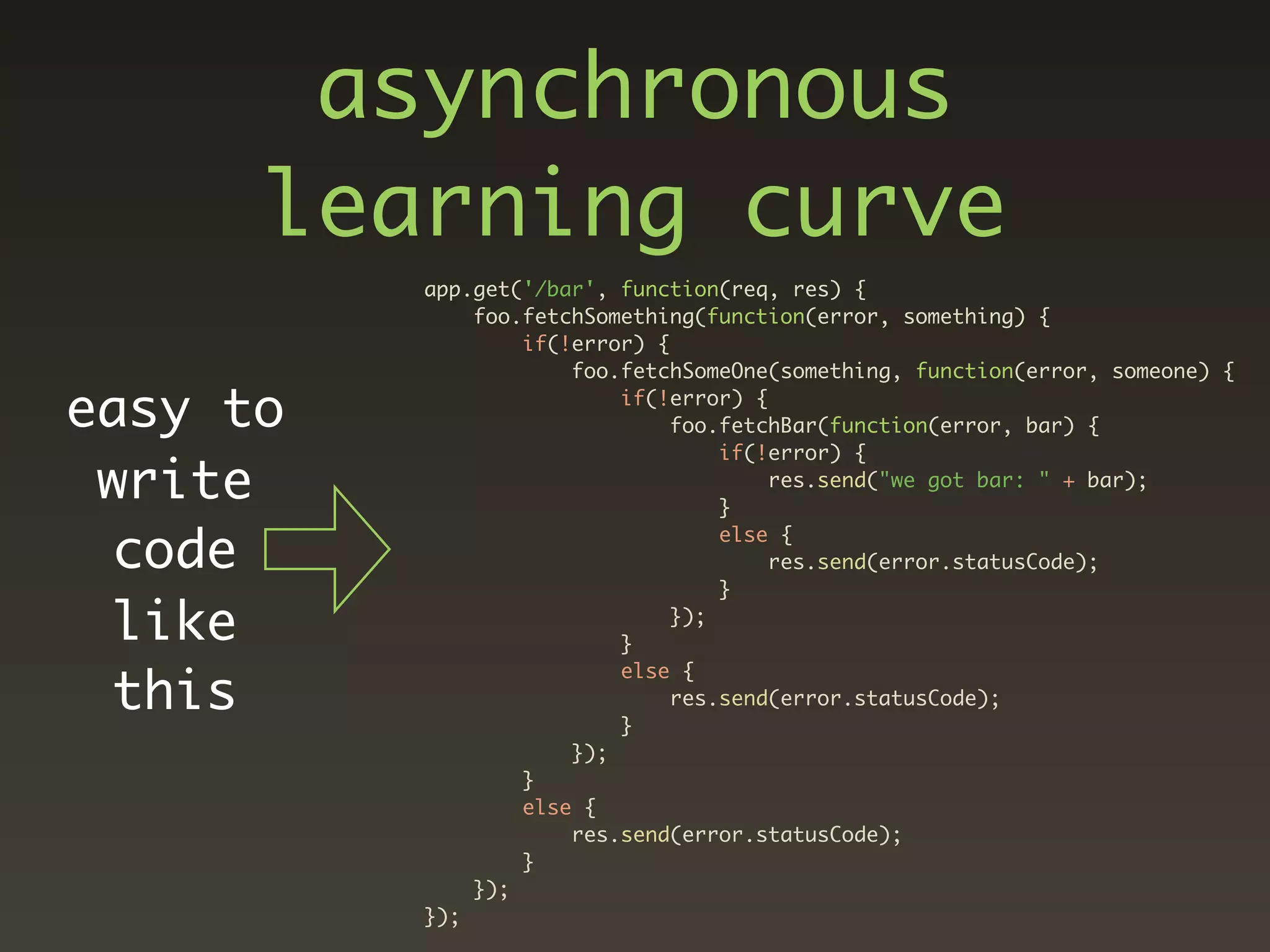
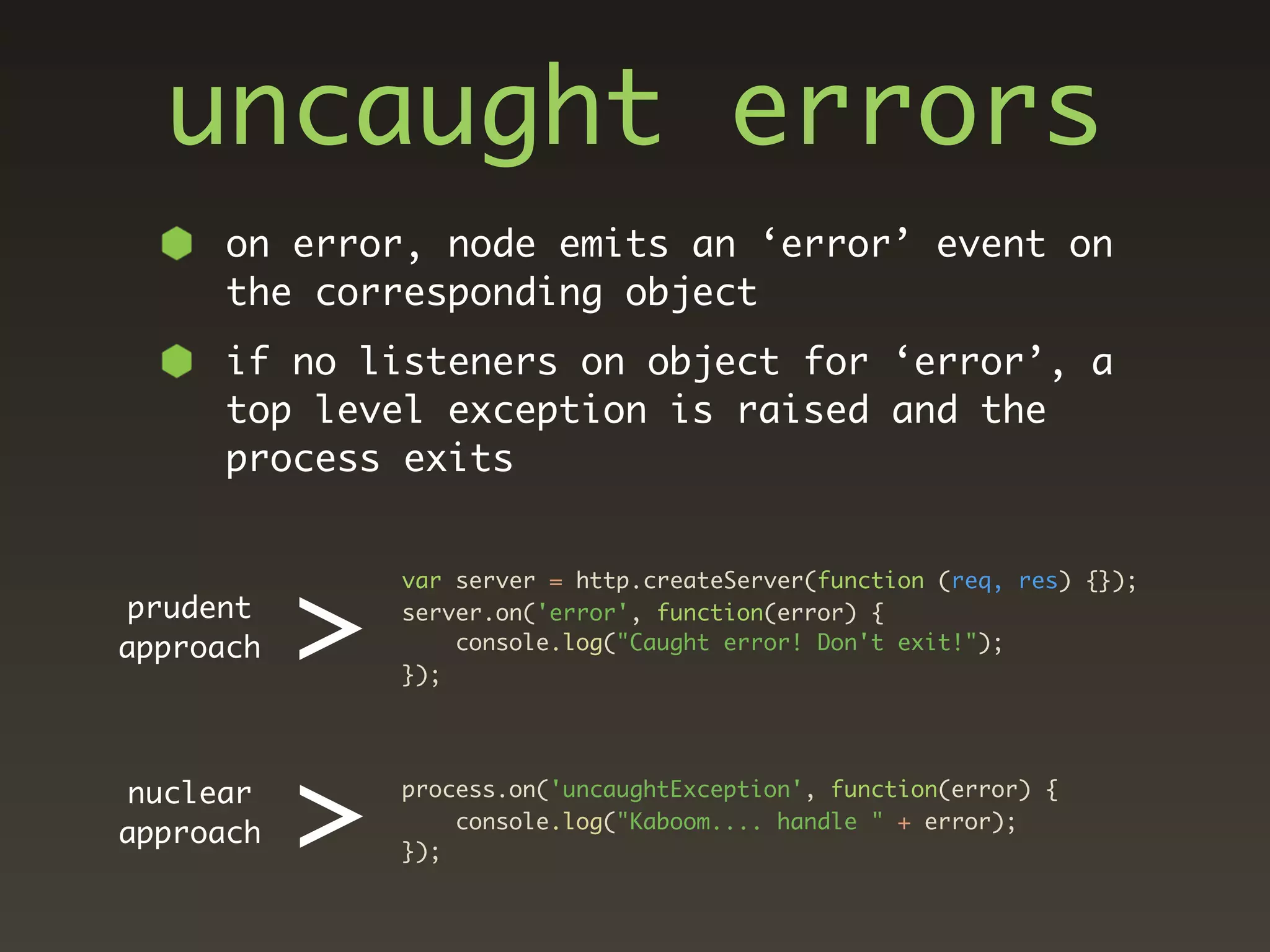
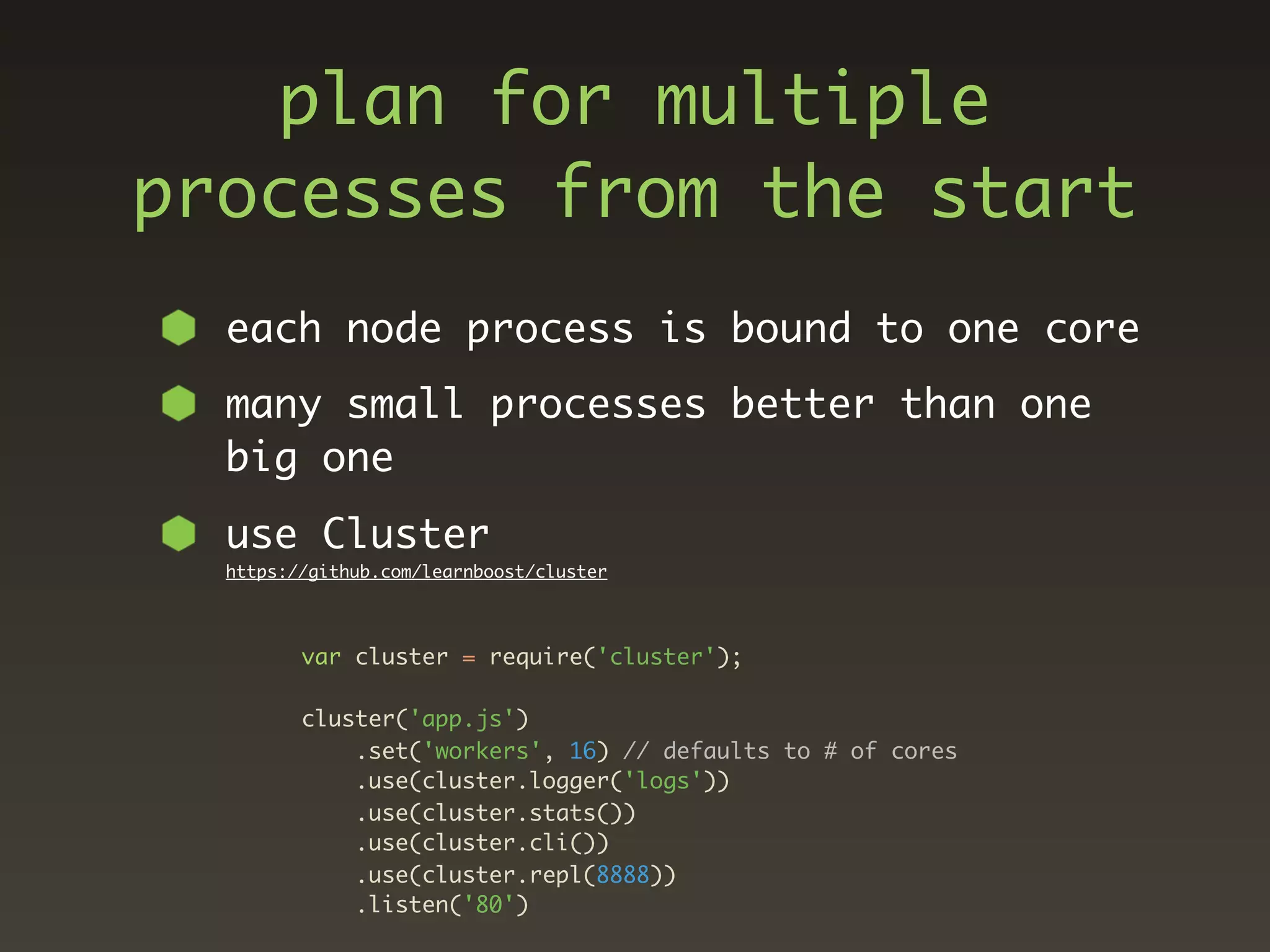
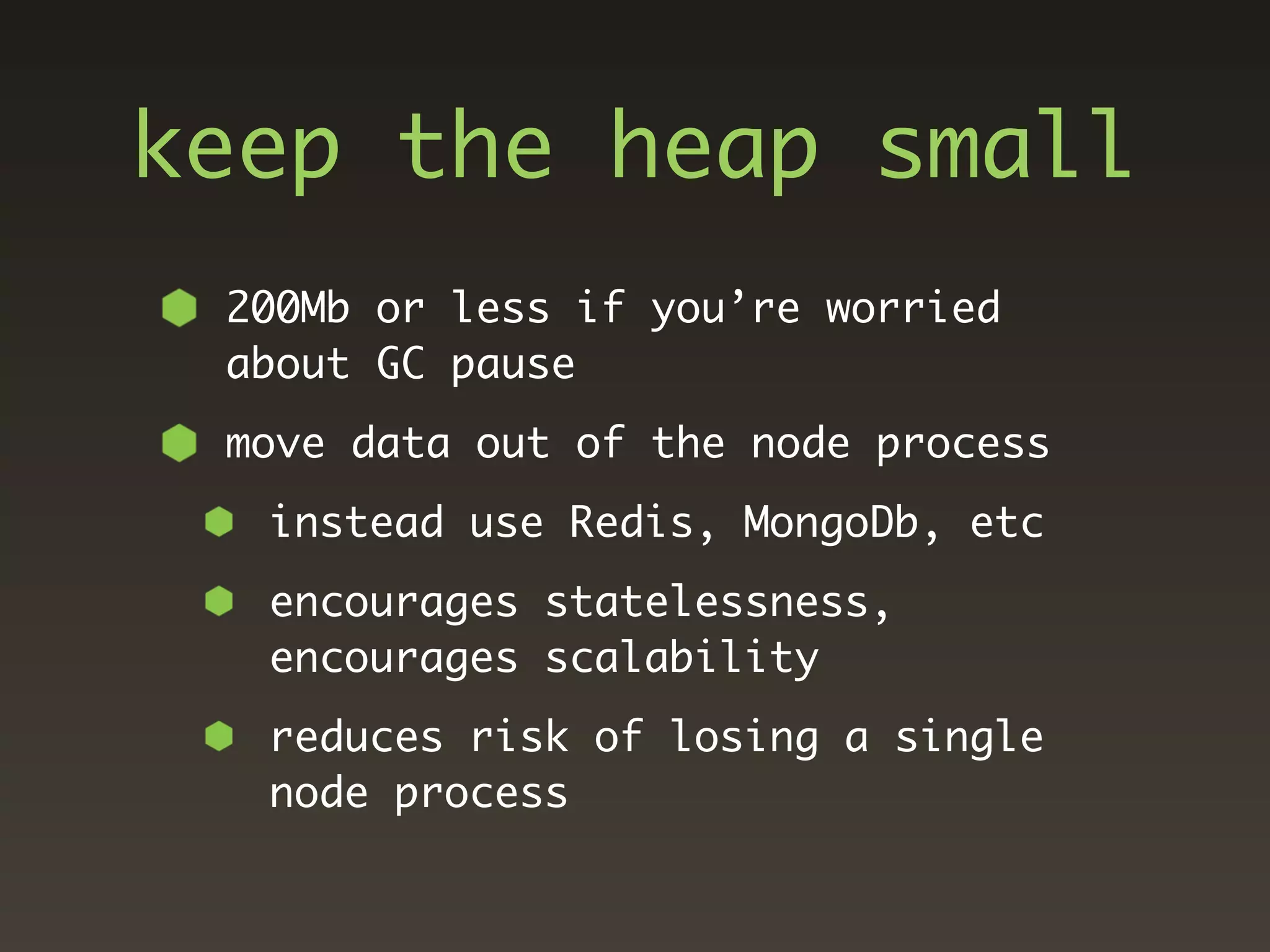

![be weary of loops
for (var i=0, l=entries.length; i<l; i++) {
doSomething(entries[i]);
}
innocent enough?
if # entries = 10,000
doSomething() takes ~1ms
you block for 10 seconds!](https://image.slidesharecdn.com/nodejs-async-for-the-rest-of-us-110803083928-phpapp02/75/Node-js-async-for-the-rest-of-us-47-2048.jpg)
![non-blocking loops
// order matters
function processEntry(entries, index) {
index = index || 0;
if(index === entries.length) return done();
doSomething(entries[index]);
process.nextTick(function() {
processEntry(entries, index++)
});
}
processEntry(entries);](https://image.slidesharecdn.com/nodejs-async-for-the-rest-of-us-110803083928-phpapp02/75/Node-js-async-for-the-rest-of-us-48-2048.jpg)
![non-blocking loops
// order doesn't matter
var leftToProcess = entries.length;
for (var i=0, l=entries.length; i<l; i++) {
(function(foo) {
process.nextTick(function() {
doSomething(foo);
if(--leftToProcess === 0) {
done();
}
});
})(entries[i]);
}](https://image.slidesharecdn.com/nodejs-async-for-the-rest-of-us-110803083928-phpapp02/75/Node-js-async-for-the-rest-of-us-49-2048.jpg)
![non-blocking loops
// order doesn't matter
// doSomething takes callback and is Async
// doSomethingAsync's happen in parallel
var leftToProcess = entries.length;
// doSomething's will be executed in parallel
for (var i=0, l=entries.length; i<l; i++) {
(function(foo) {
process.nextTick(function() {
doSomethingAsync(foo, function() {
if(--leftToProcess === 0) {
done();
}
});
});
})(entries[i]);
}](https://image.slidesharecdn.com/nodejs-async-for-the-rest-of-us-110803083928-phpapp02/75/Node-js-async-for-the-rest-of-us-50-2048.jpg)
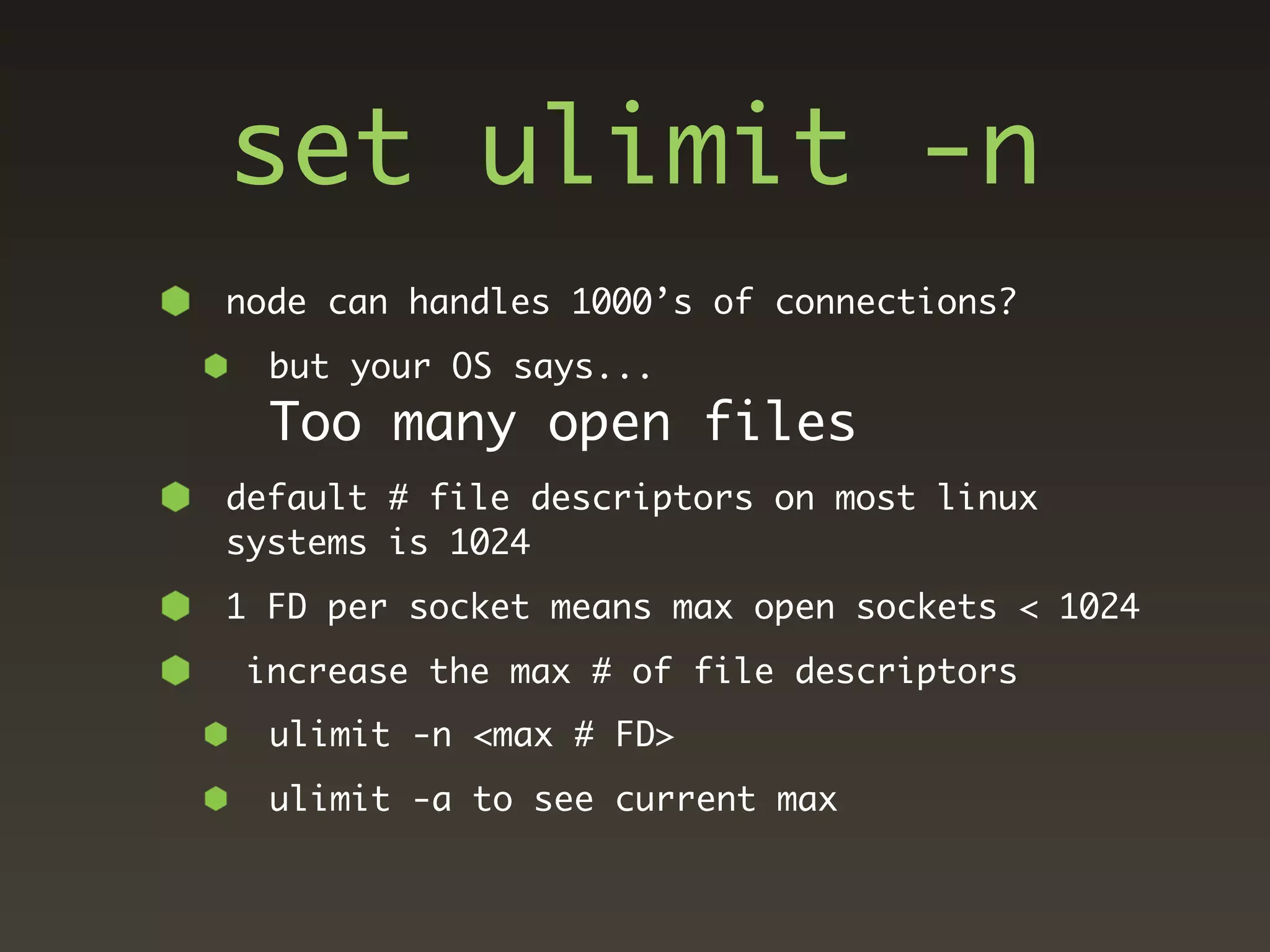
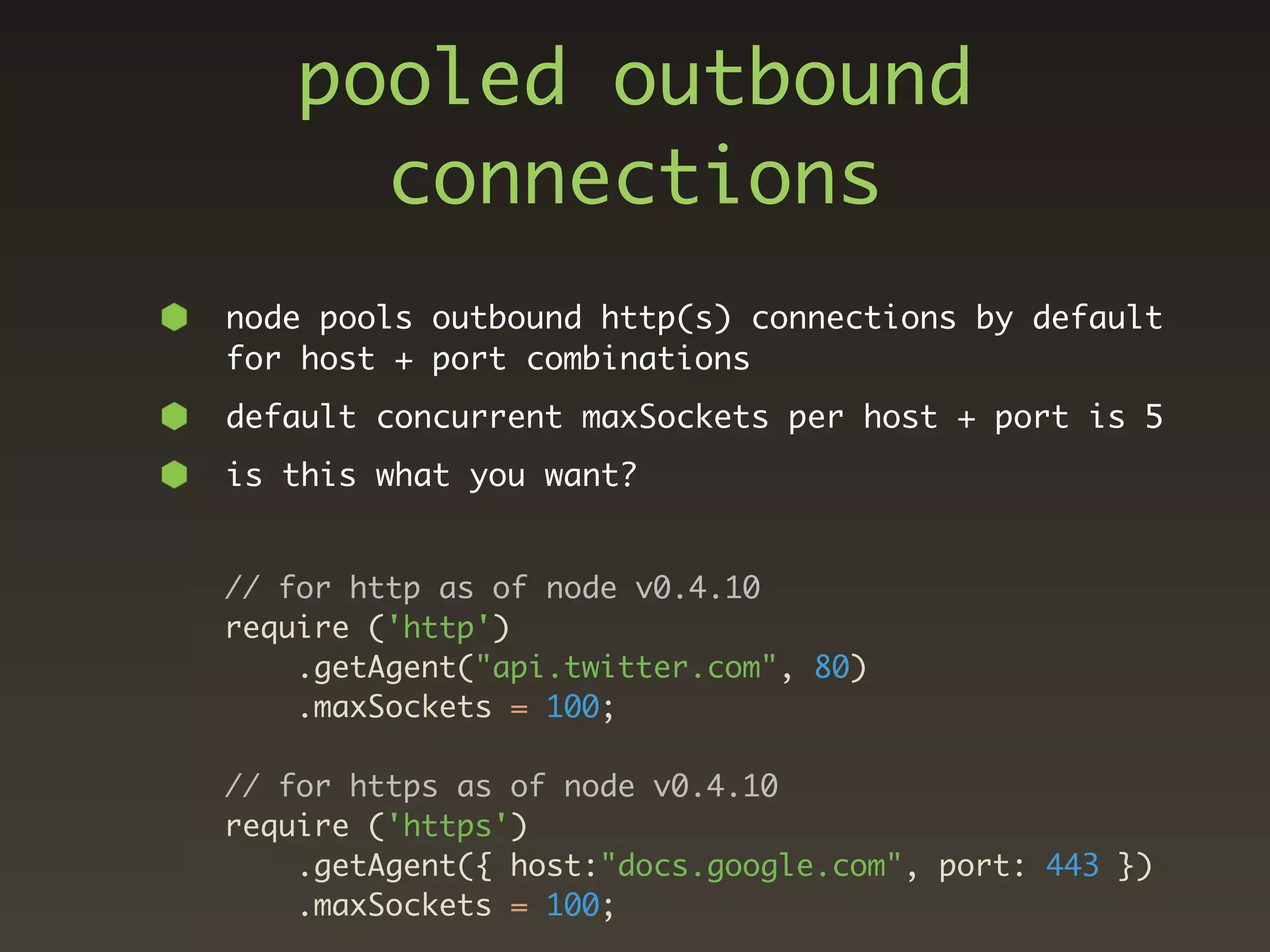
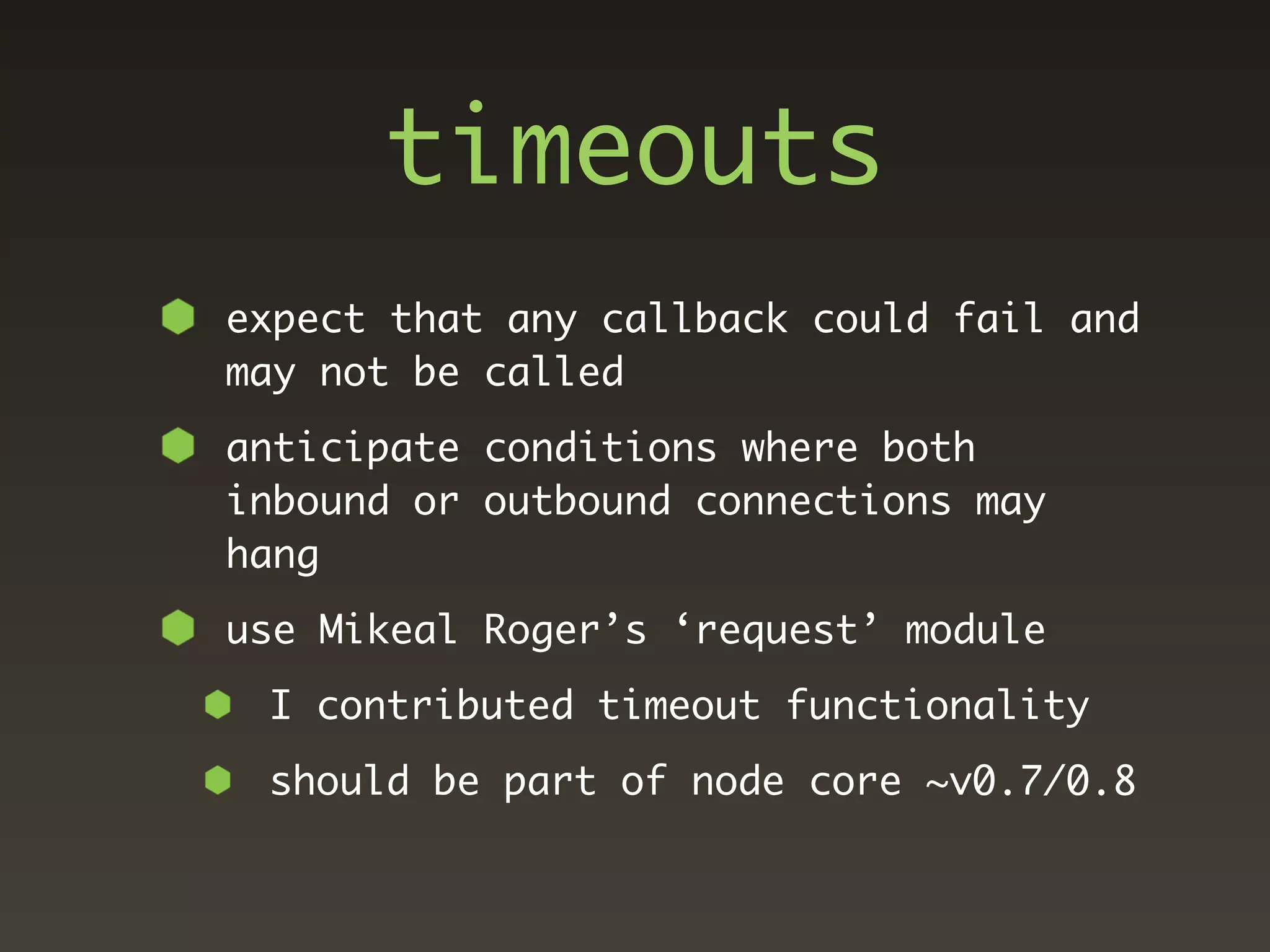
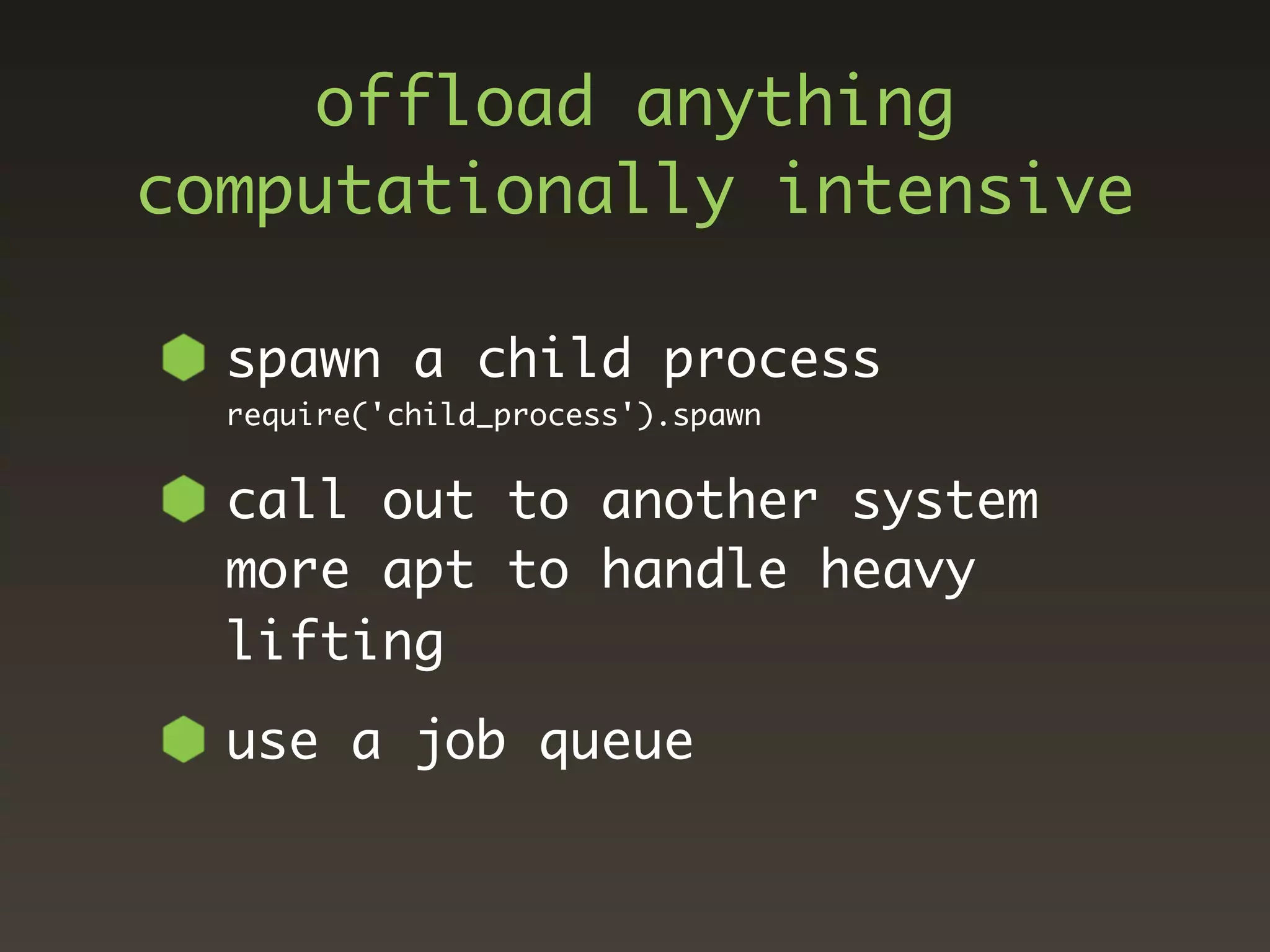
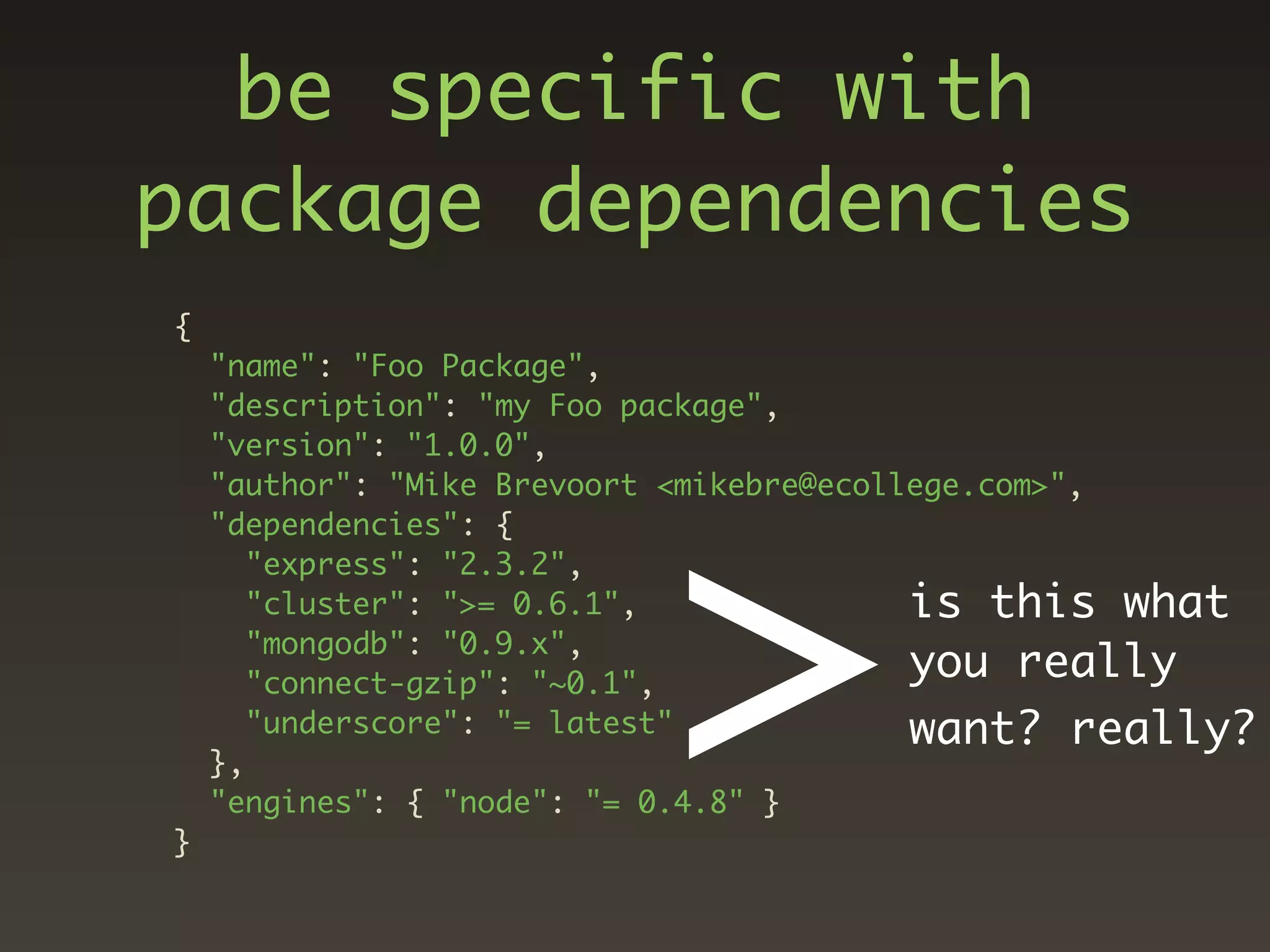
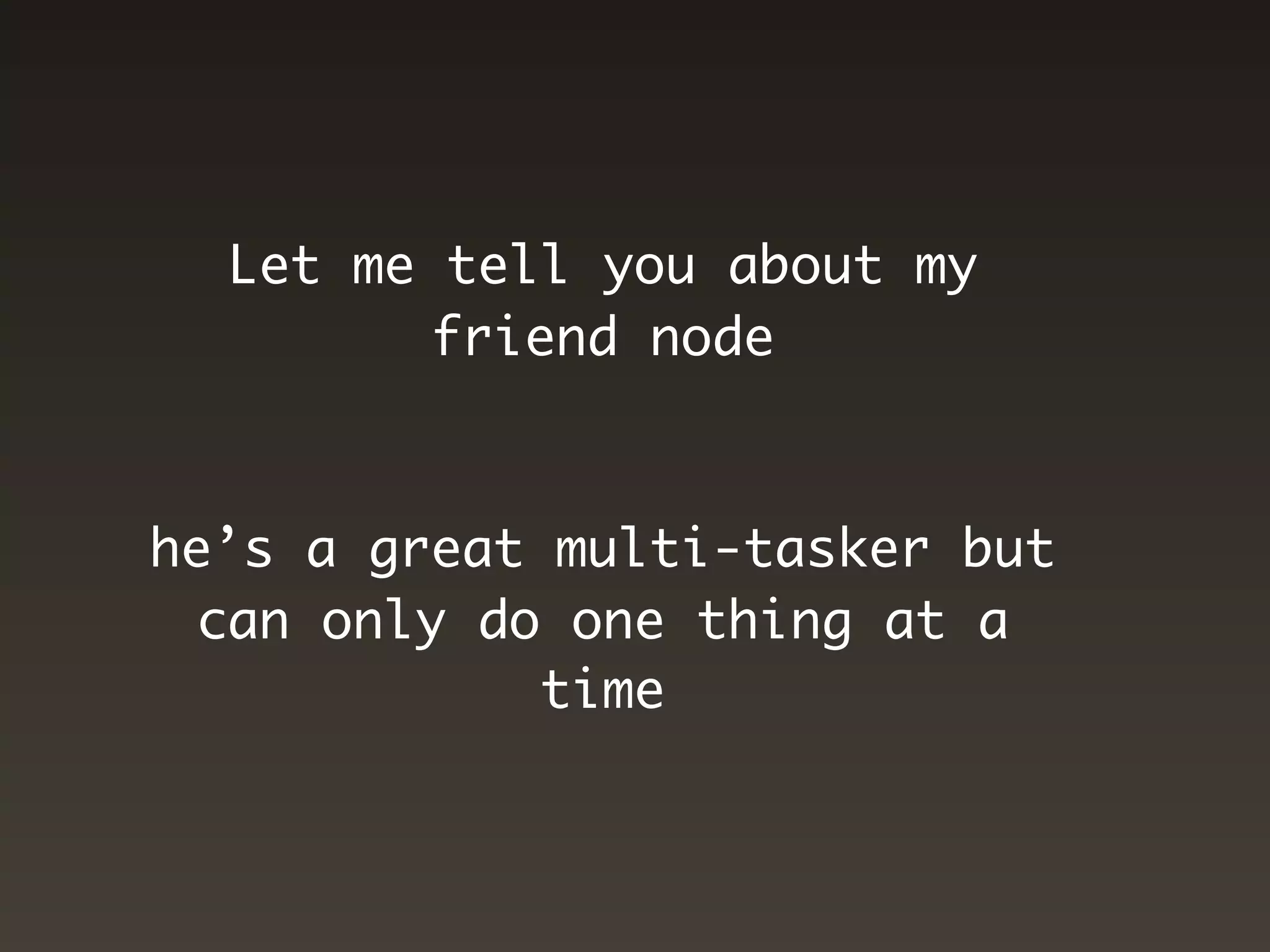
![Thank You!
Questions?
Mike Brevoort
@mbrevoort
mike [at] brevoort [dot] com](https://image.slidesharecdn.com/nodejs-async-for-the-rest-of-us-110803083928-phpapp02/75/Node-js-async-for-the-rest-of-us-57-2048.jpg)